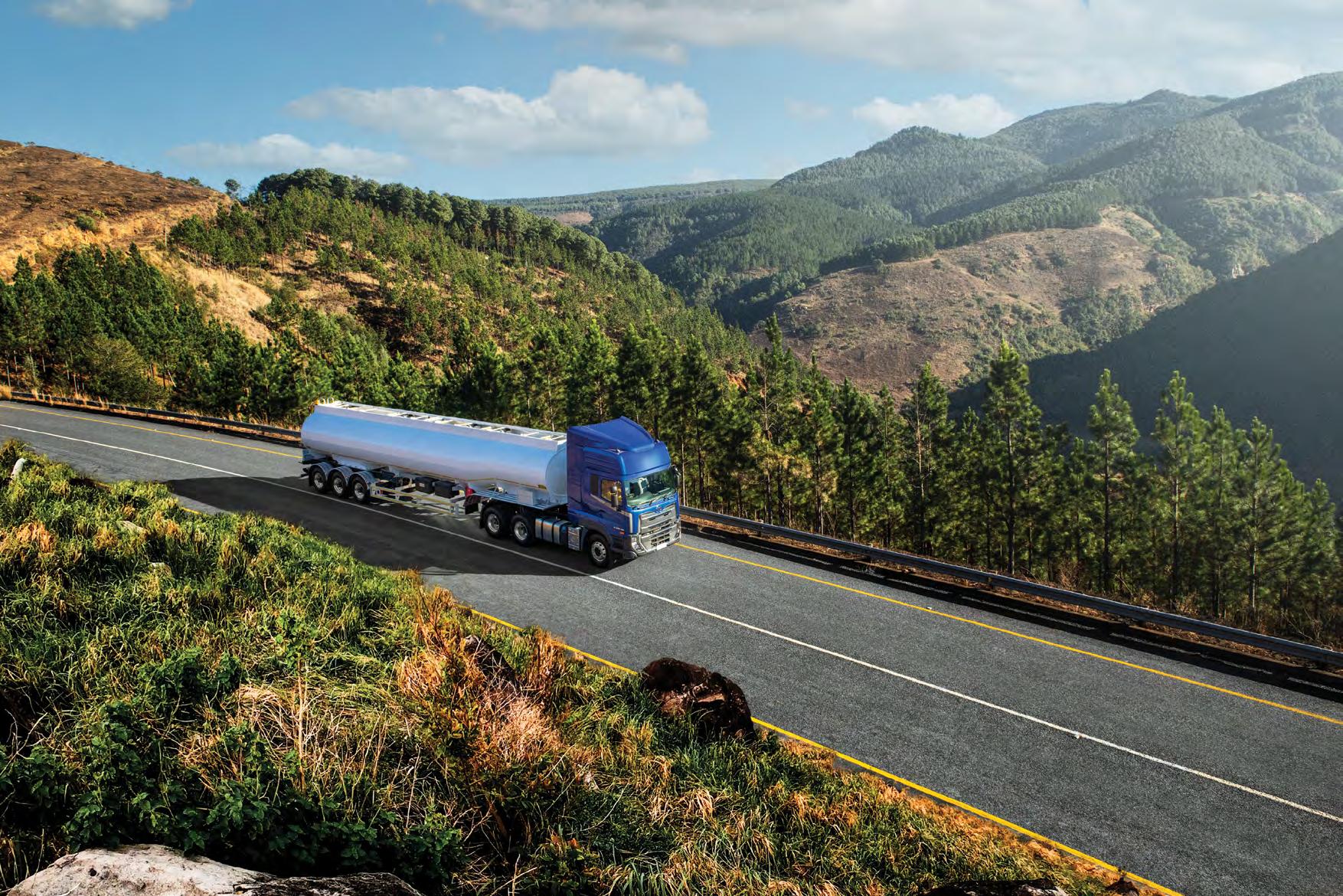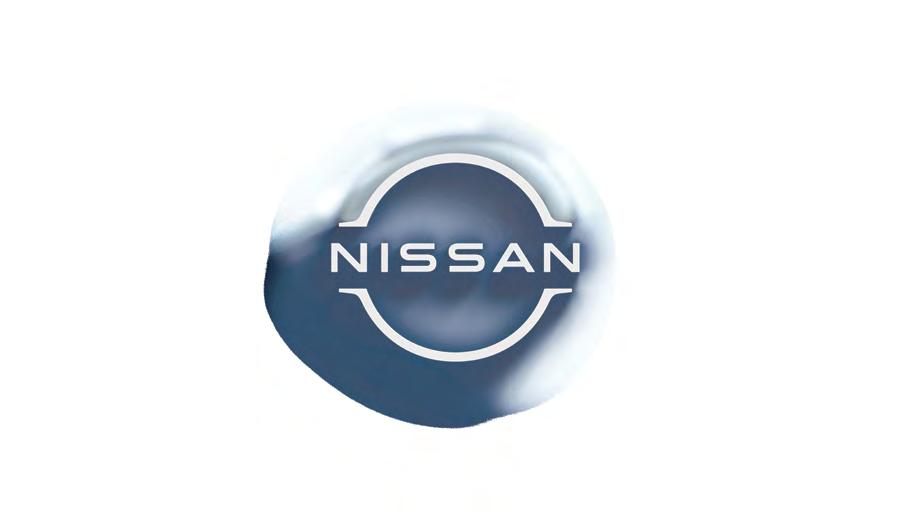VERTICAL TRANSPORTATION
Vertically to Greatness

CONNECTING TRADE PROFESSIONALS WITH INDUSTRY INTELLIGENCE
ROBOTICS
Bots at Work
ELECTRIC BIKES
The Magic Behind Charging Stations
FEBRUARY 2025

VERTICAL TRANSPORTATION
Vertically to Greatness

CONNECTING TRADE PROFESSIONALS WITH INDUSTRY INTELLIGENCE
ROBOTICS
Bots at Work
ELECTRIC BIKES
The Magic Behind Charging Stations
FEBRUARY 2025
FIVE INDUSTRY TITANS DISCUSS LEADERSHIP AND SUPPLY CHAIN RESILIENCE, AND DEBATE THE FUTURE OF TECHNOLOGY
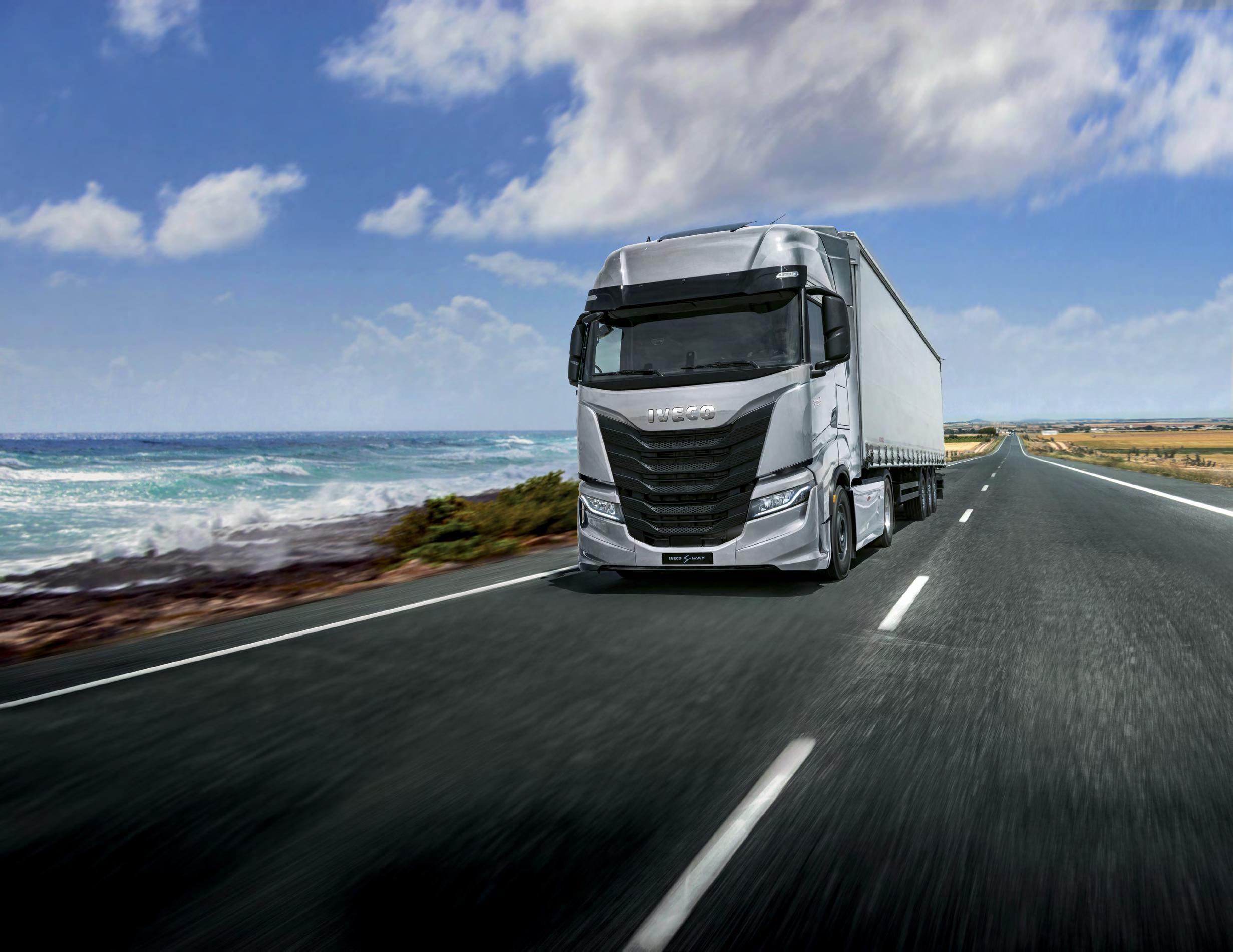
New IVECO S-Way: high technology and efficiency on all missions
A wide choice of Euro III / V diesel engines, delivering class-leading power from 360 hp to 560 hp Euro III / 570 hp Euro V and superior fuel economy. 12-speed HI-TRONIX automated transmission with the most advanced technology in its category, electronic clutch and best-in-class torque-to-weight ratio. Full range of fuel-saving devices, such as anti-idling feature, EcoSwitch, Ecoroll and Smart Alternator. Top levels of comfort and safety, with a completely redesigned and reinforced cab, featuring enhanced direct visibility and enlarged cab livability.

16 TALKING POINT UNTANGLING SUPPLY WEBS
18 EDUCATION FOR THE TALENTS THAT DESERVE RECOGNITION
20 TRUCKS CHARGING AHEAD: TRUCKING’S EV REVOLUTION
22 INSIDE KNOWLEDGE THE NEW AGE OF LOGISTICS

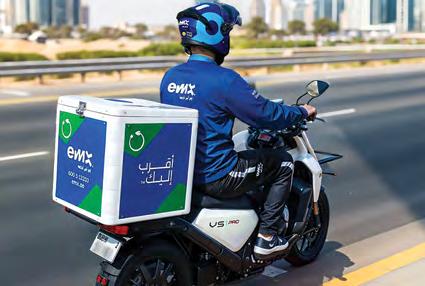
24 INTERVIEW NOTES FROM A VISIONARY TRAILBLAZER 28 COVER STORY LEADERSHIP IN TIME OF CHANGE 38 SUSTAINABILITY NURTURING GENERATIONS WITH GOODNESS AND HAPPINESS SUSTAINABLY 40 VERTICAL TRANSPORTATION VERTICALLY TO GREATNESS
44 ROBOTICS BOTS AT WORK
48 ELECTRIC BIKES THE MAGIC BEHIND CHARGING STATIONS
52 AUTOMOTIVE TRANSFORMING AUTOMOTIVE LOGISTICS IN THE UAE

Nestled by the coast of Lusail sits the splendor of Raf es and Fairmont Doha, where luxury is rooted in even the smallest details. Open the doors to mesmerizing hospitality and make memories in a world of sophistication.

CONNECTING TRADE PROFESSIONALS WITH INDUSTRY INTELLIGENCE
CONNECTING TRADE PROFESSIONALS WITH INDUSTRY INTELLIGENCE
CEO
Wissam Younane wissam@bncpublishing.net
Director
CEO
Rabih Najm rabih@bncpublishing.net
Wissam Younane wissam@bncpublishing.net
Group Publishing Director
Director
Joaquim D’Costa jo@bncpublishing.net
Rabih Najm rabih@bncpublishing.net
Commercial Director
Group Publishing Director
Andrea Mocay andrea@bncpublishing.net
Joaquim D'Costa jo@bncpublishing.net
Editor-in-Chief
Editor-in-Chief
Vibha Mehta vibha@bncpublishing.net
Vibha Mehta vibha@bncpublishing.net
SUBSCRIBE subscriptions@bncpublishing.net
Editor Aya Zhang aya@bncpublishing.net
Managing Editor
Kasun Illankoon kasun@bncpublishing.net
Creative Lead
Christian Harb chriss@bncpublishing.net
Design Christian Harb
Editorial Design Rizaldi Febrian
Marketing Executive
Aaron Joshua Sinanbam aj@bncpublishing.net
Marketing Executive
Digital Media Producer
Aaron Joshua Sinanbam aj@bncpublishing.net
Alexander Bungas
Videographer
Eduardo Buenagua
Images used in Logistics News ME are credited when necessary. Attributed use of copyrighted images with permission. All images not credited courtesy Shutterstock.

PO Box 502511 Dubai, United Arab Emirates P +971 4 4200 506 | F +971 4 4200 196
For all commercial enquiries, contact jo@bncpublishing.net T +971 50 440 2706
SUBSCRIBE subscriptions@bncpublishing.net PO Box 502511 Dubai, United Arab Emirates P +971 4 4200 506 | F +971 4 4200 196
All rights reserved © 2025. Opinions expressed are solely those of the contributors. Logistics News ME and all subsidiary publications in the MENA region are officially licensed exclusively to BNC Publishing in the MENA region by Logistics News ME.
No part of this magazine may be reproduced or transmitted in any form or by any means without written permission of the publisher.
Printed by United Printing and Publishing | upp.ae
For all commercial enquiries, contact jo@bncpublishing.net T +971 50 440 2706 All rights reserved © 2023. Opinions expressed are solely those of the contributors. Logistics News ME and all subsidiary publications in the MENA region are o cially licensed exclusively to BNC Publishing in the MENA region by Logistics News ME. No part of this magazine may be reproduced or transmitted in any form or by any means without written permission of the publisher.
Printed by United Printing and Publishing | upp.ae
In addition to our print edition, we’re bringing you all sorts of industry news on our web mediums. We’re looking forward to interacting with our readers on all of our social media and web platforms. See you on the web!
addition to our we’re bringing you all sorts of industry news on our web mediums. We’re looking forward to interacting with our readers on all of our social media and web platforms. See you on the web!

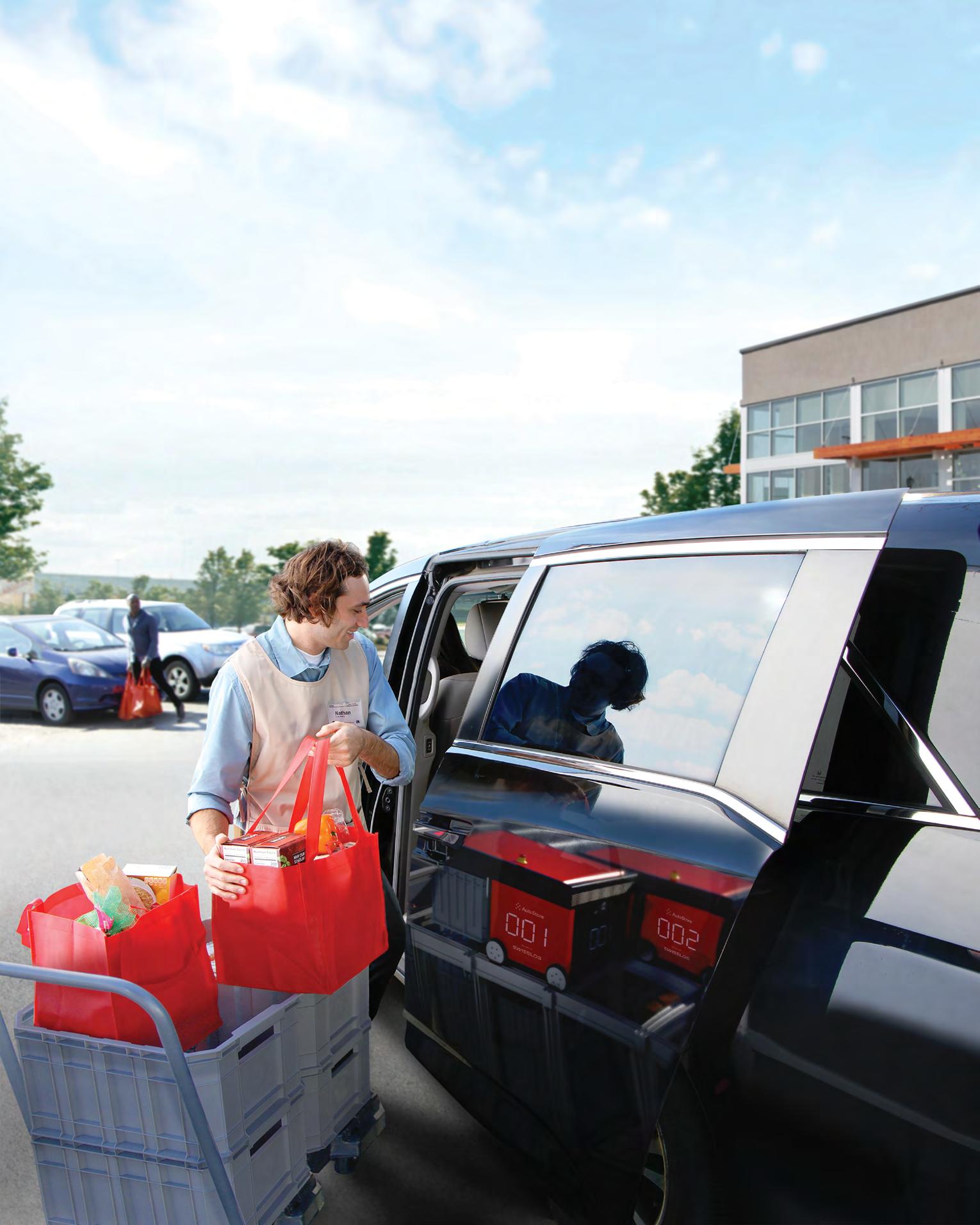
EDITOR’S NOTE

Awhile ago, I watched a TED talk titled, “How to Speak So That People Want to Listen.” It was a short 10-minute video, but it was a true masterpiece. I’ve watched it two more times after that, and I plan to watch it again until it sets as a part of my unconscious mind. Julian Treasure, the speaker in the talk, lists the seven deadly sins of speaking, and introduces four powerful
cornerstones of speech. I am not going to mention everything he has spoken about, but the last element of the four powerful approaches to enrich the way you speak is LOVE. Love in the way that when you interact with others, you wish them well. He also mentions that when you speak with people with love, it is very hard to judge them at the same time, as the two can hardly go along together.
It is highly challenging sometimes to be more intentional and loving towards the other person when we speak - to genuinely wish them the utmost good, just as we wish for ourselves. Yet, it is very convenient to let impatience, judgement, assumptions, or any other vices get in the way, and it is extremely easy to lose sight in the midst of things. However, if this focus is shifted, our words would carry more meaning - it will elevate ourselves and our relationships. If we were trying to love instead of hate, advise instead of criticise, and encourage instead of demean, then our spoken word would be much more influential and fulfilling.
The human voice is a tool of power, if utilised correctly. If the way to speak with love is not one trait that comes naturally, we can practice it, fail through it, and start again. Each day is another chance to refine it, until we can eventually master it. Here is to a conversation full of intention, good wish, and pure value.
Aya Zhang Editor aya@bncpublishing.net
Xiaoyue (Aya) Zhang xiaoyuezhangg






























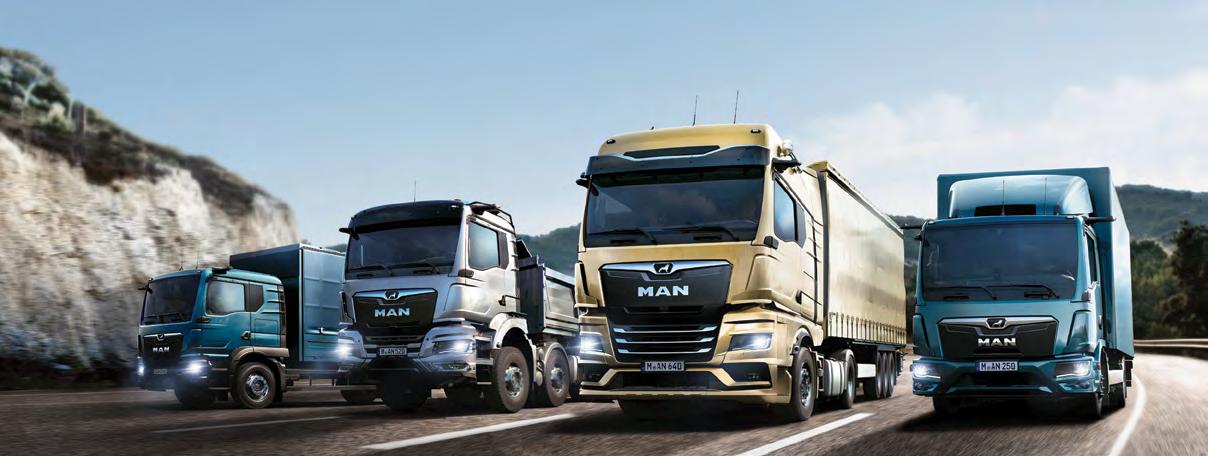











































Step into a world of opulence when you book a Suite at Raffles Doha.
Experience the added luxury of QAR 750 credit to spend on dining in the hotel, and QAR 500 towards any Spa treatment.
Children aged 12 and below are welcome to indulge in the enchantment of complimentary dining.
Rates starting from QAR 3,500 per night
For reservations, please call +974 4030 7100 or email reservations.doha@raffles.com


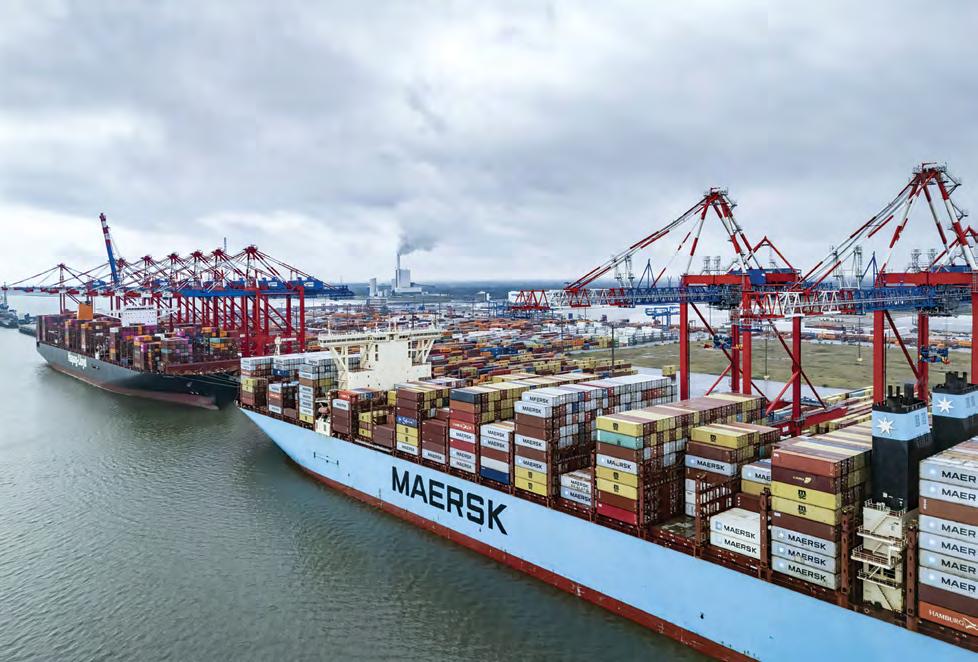
On February 1, Maersk A/S (Maersk), an entity under A.P. Moller – Maersk, and Hapag-Lloyd AG (Hapag-Lloyd) launched their operational collaboration Gemini Cooperation. The ambition is to deliver a flexible and interconnected ocean network with industry-leading schedule reliability above 90% once fully phased in.
Around 340 vessels will be phased in and be a part of the two companies’ shared ocean network, with the first sailings taking place on February 1, and more vessels will gradually sail on the new schedules.
“We are now ready to commence the phase-in of the new network. Over the last year, we have carefully planned this to ensure that all our customers
experience a smooth transition into the new network. With its innovative design, we believe our customers will benefit from increased reliability, flexibility and more competitive products,” says Johan Sigsgaard, Chief Product Officer of Ocean at Maersk.
The transition period is expected to last until late May, with vessels phasing into the new network and out of the expiring agreements that Maersk and Hapag-Lloyd have with other carriers. June will be the first full month in which the network is fully phased in with all vessels sailing on Gemini schedules.
The two companies’ shared network covers East/West trades and consists of 29 efficient ocean mainliner services supported by an extensive network of 28 agile, intraregional shuttle services.
Hellmann Worldwide Logistics is pleased to announce the appointment of Lee I’Ons as the new Regional CEO for the IMEA region, effective April 1, 2025. He will also join the International Executive Board. Lee succeeds Madhav Kurup, who has led the region since 2008 and was recently promoted to the Global Management Board as COO for Airfreight, Seafreight, and Contract Logistics.
A South African native, Lee I’Ons brings 30 years of logistics experience across Asia, the Middle East, and Africa. He began his career in Durban with a shipping agency, before joining Kühne+Nagel, where he held senior roles for 26 years, most recently as National Manager GCC and President of Middle East and Africa.
In his new role, Lee will focus on accelerating growth in the IMEA region, leveraging his deep connections and understanding of the region’s markets. He and his team will continue the strong development of the region, which is home to 2,000 employees across 14 countries and six vertical joint ventures. IMEA remains a key growth driver for Hellmann, including fast-growing markets such as India, Saudi Arabia, the UAE, and emerging opportunities in Africa.
Jens Drewes, CEO of Hellmann Worldwide Logistics, said: “We are delighted to welcome Lee on board to lead such a strategically important geographical cluster. IMEA has been a driving force of innovation and growth for Hellmann over the past decades. While we are already market leaders in sectors like Automotive and Pharma, Lee´s leadership will be fundamental in building on the strong foundation laid by Madhav and his team as we pursue our expansion plans.”
Reflecting on his tenure, Madhav Kurup said: “It has been a privilege to lead the IMEA region and work with such a talented team. I am confident that under Lee’s leadership, Hellmann will
continue to innovate and expand its presence in this vital market and I look forward to supporting the company’s continued success in my role on the Global Management Board.”

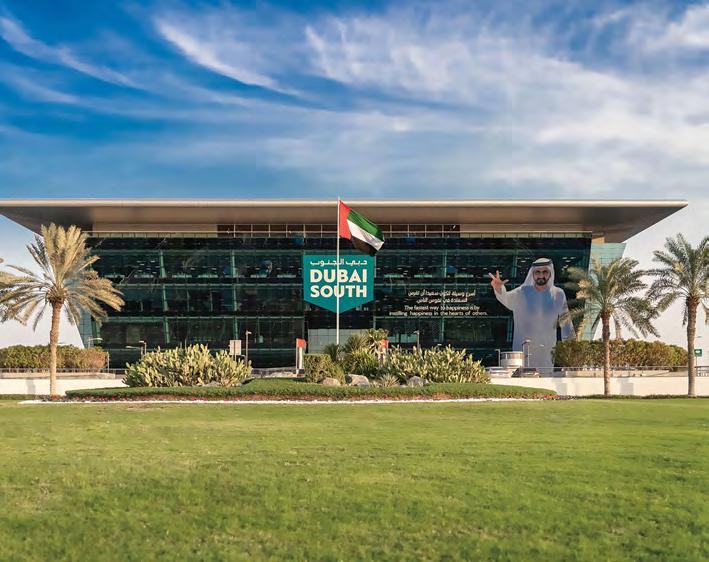
Dubai South, the largest single-urban master development focusing on aviation, logistics and real estate, concluded 2024 with remarkable achievements across its various districts.
Last year, the development welcomed 415 new companies, bringing the total number of operating companies to 4,044, with 94% of existing companies retained.
At the Dubai South Business Park, 500,000 square feet of office space was leased, marking a 300% increase from 2023.
Dubai South Properties successfully completed Phase 1 of The Pulse Beachfront, comprising over 200 units, with an additional 500 units from other phases set for completion by the end of H1 2025. To meet the growing demand for apartments in Dubai South, South Living was launched, generating immense interest and achieving a complete sell-out. A contractor has been appointed and construction has started at the project.
Furthermore, GEMS Founders School officially opened its doors last year, welcoming over 500 students, while an agreement
was signed with BT Properties, Asia’s largest private property developer for the development of a gated master community within Dubai South’s Golf District.
The Logistics District celebrated several milestones, further solidifying its position as a key contributor to the UAE’s growing logistics sector. These include the inauguration of a state-of-theart FedEx air and ground regional hub, the opening of Boston Scientific’s regional distribution centre at Hellmann Calipar Healthcare Logistics’ facility, and the groundbreaking of a new facility by dnata Logistics.
Additionally, the first stage of the UAE’s autonomous vehicle trials, conducted in collaboration with Evocargo, was successfully completed.
The Mohammed bin Rashid Aerospace Hub has signed several agreements with prominent aviation players to establish their presence at the hub. These include International Energy Resources (IER), which will set up a state-of-the-art MRO and engine test cell facility; ATS Technic and Liebherr Aerospace for MRO facilities; and SG Aircraft Maintenance Services and Sun Air Aircraft Maintenance Services. Additionally, Tim Aerospace has broken ground on its new facility, while Jet Flight Services and Comlux have inaugurated their new facilities at MBRAH.
Emirates Post, the UAE’s official postal services provider and postal services operator of 7X, signed a memorandum of understanding (MoU) with FedEx, the world’s largest express transportation company. The collaboration aims to offer FedEx’s premier world-class international services at the postal branches, in line with Emirates Post’s new vision to expand the international shipping services, providing its customers with a diverse portfolio of services.
The MoU was signed by Ayoub Ahli, general manager of Emirates Post, and Nitin Tatiwala, vice president of Marketing and Air Network for FedEx Middle East, Indian Subcontinent and Africa (MEISA), during a ceremony held at the 7X Group’s headquarters in Dubai. The signing ceremony was attended by representatives from both organisations, who have developed a comprehensive business plan to introduce FedEx services at the postal branches, starting from the second quarter of 2025.
Ayoub Ahli said: “Emirates Post’s collaboration with FedEx reflects our broader
vision to transform our branches into dynamic hubs offering a wide range of services to support the UAE community. Such an approach also facilitates access to innovative, customer-focused solutions that address the evolving needs of individuals and businesses alike. Moreover, by broadening our international offerings, we hope to further consolidate the branches’ stature as a trusted pillar of society, while enhancing connectivity, and empowering communities across the UAE.”
Nitin Tatiwala said: “At FedEx, we are committed to delivering exceptional experiences by enhancing the convenience and
accessibility of our customers. Our collaboration with Emirates Post will further expand our local presence through its extensive retail network, underscoring a shared dedication to providing access to fast, reliable, and efficient logistics. Together, we are strengthening the UAE’s connectivity to global markets while addressing the evolving needs of local communities.”
The collaboration empowers both entities to enhance customer experience by offering a range of services in line with diverse market demands, while keeping pace with the dynamic changes shaping the postal and courier services sector.
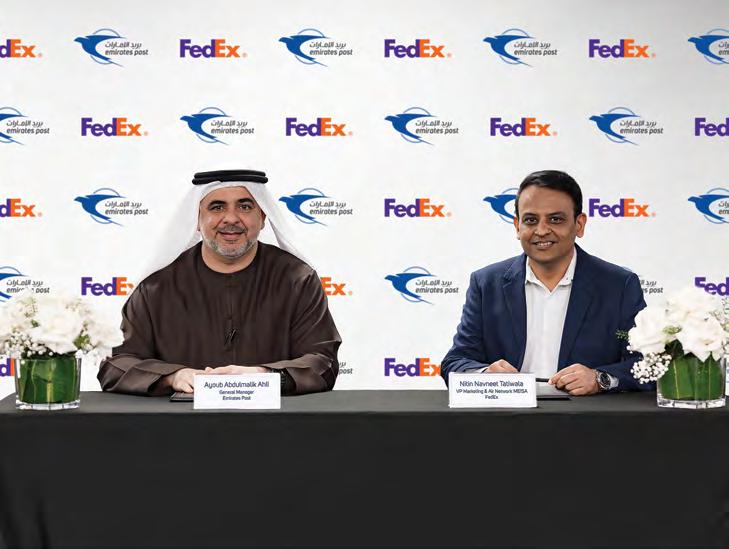
In today’s globalised economy, international supply chains face increasing complexities, driven by evolving customer expectations and dynamic market conditions. Suppliers are constantly pressured to reduce costs and improve efficiency, quality, and delivery performance. They often face demands to innovate, adapt to market changes, ensure sustainability, and meet increasingly stringent compliance and regulatory requirements. Additionally, suppliers may be expected to maintain flexibility to handle fluctuating demand and collaborate more closely with buyers to optimise the supply chain. With global supply chains becoming more intricate, it is essential to explore ways to address these challenges effectively.
One of the critical considerations in supply chain management is the geographic configuration of a firm’s network. This involves determining the number and location of production facilities and allocating market regions to specific sites. These
decisions aim to balance cost reduction, compliance with trade regulations, access to local markets, and enhanced proximity to customers and suppliers. Geographic proximity plays a pivotal role in optimising supply chain efficiency. It reduces lead times, lowers transaction costs, and facilitates agile supply chain strategies. However, these benefits are challenging, especially when firms operate geographically dispersed networks. Such networks often increase spatial complexity, leading to coordination issues, higher operational costs, and susceptibility to disruptions. Suppliers must consider their manufacturing network and the overall configuration of customer networks, including sales entities and distribution hubs.
The geographic layout of customer networks significantly influences suppliers’ decisions about manufacturing facility locations. When customers consolidate demand across their networks, suppliers may face aggregated orders, prompting them to
establish manufacturing plants closer to key markets. This proximity enhances responsiveness and fosters long-term partnerships, enabling cost savings and resource optimisation. However, suppliers often encounter challenges when serving geographically dispersed customer networks. The broader the customer footprint, the more complex the operational landscape becomes. Adapting to diverse market requirements, complying with local regulations, and addressing varying payment terms can impose significant operational burdens. For instance, suppliers must navigate foreign export regulations, manage multi-layered legal structures, and adapt to different technologies and market norms. These complexities can increase costs, strain resources, and reduce cash flow performance.
While the dispersion of customer networks offers opportunities for diversification and market adaptation, it also demands higher operational investments. Diversified networks enable suppliers
to spread risks, maximise sales, and capitalise on market imperfections. However, this comes at the cost of increased communication and coordination challenges, higher logistical expenses, and variability in demand management. Suppliers with dispersed customer networks face fragmented distribution systems, high transportation costs, and inconsistent government regulations. Furthermore, these networks can complicate demand forecasting and order fulfilment, leading to delays and inefficiencies. For instance, dispersed customers’ demand for new products often creates longer paths between supply chain nodes, reducing responsiveness and increasing the likelihood of bottlenecks.
Suppliers face increasing pressure to prioritise sustainability as businesses and consumers emphasise the importance of environmentally and socially responsible practices. They must adopt greener production methods, reduce waste, and source materials ethically to align with global standards and customer expectations. Additionally, suppliers are often required to provide transparency in their processes and demonstrate compliance with sustainability regulations, which can challenge operational efficiency and cost management.
To navigate the complexities of international supply chains, suppliers can adopt several strategies:
1. Collaborative Planning and Partnerships: Strengthening customer collaboration can help suppliers align their manufacturing networks with customer requirements. Long-term contracts and cooperative relationships can facilitate mutual benefits and reduce operational uncertainties.
2. Leveraging Technology: Advanced analytics, digital twins, and supply chain management software can help suppliers simulate scenarios, optimise network designs, and predict disruptions.
3. Risk Mitigation Strategies: Diversifying supplier bases, incorporating redundancy in critical nodes, and establishing robust contingency plans can minimise the impact of disruptions.
4. Local Adaptation: Tailoring operations to meet the unique needs of local markets while maintaining global standards can enhance
responsiveness and customer satisfaction.
5. Sustainability and Resilience: Incorporating sustainable practices and building resilient supply chains can address regulatory pressures and consumer expectations.
The complexities of international supply chains in 2025 highlight the need for strategic approaches to balance cost efficiency with geographic proximity. Suppliers can address these challenges effectively by optimising network designs, fostering collaboration, and leveraging technology. While geographic dispersion and low-cost production offer significant benefits, they must be carefully managed to avoid operational inefficiencies. Adaptability and strategic foresight will remain essential for success as global supply chains evolve.

Mr. Mohammed Al Ghaffari, Executive Director: Human Resources Division, Dubai Customs, provides us with invaluable insights into the newly established Dubai Logistics Academy
In December 2024, The Ports, Customs and Free Zone Corporation, along with the Free Zone, hosted an event to celebrate the official opening of the Dubai Logistics Academy, an innovative educational institution for Dubai Customs. The event included an award ceremony to acknowledge key strategic partners, including logistics companies and Dubai University.
The ceremony was attended by H.E. Sultan bin Sulayem, DP World Group Chairman & CEO and Chairman of Ports, Customs and Free Zone Corporation, H.E. Nasser Al Neyadi, CEO of PCFC, H.E. Dr. Abdulla Busenad, Director General of Dubai Customs, and H.E. Abdullah bin
Zayed Al Falasi, Director General of the Dubai Government Human Resources Department.
The launch of the Dubai Logistics Academy, as a pioneering
vocational institution, is a strategic initiative by Dubai Customs to train and develop talent in the logistics sector. This significant step aims to meet the current and future demand for skilled professionals in the logistics and customs sectors.
Through an innovative and sustainable vocational learning approach, the academy seeks to enhance operational efficiency and build capabilities that contribute to strengthening the local economy. It will elevate Dubai’s global standing as a strategic hub for transportation, distribution, and logistics services. Additionally, it supports sustainable development by addressing the future demands of global supply
chains, aligning with Dubai’s ambitious plans and its socioeconomic agenda.
The logistics sector is a cornerstone of Dubai’s economic development, requiring diverse professional expertise for expansion and growth. Through Dubai Logistics Academy and its globally accredited, specialised professional and vocational programs, the initiative will play a direct role in building capacity in the supply chain and logistics sector. This will reinforce Dubai’s pivotal role in connecting global economies by ensuring the seamless flow of international trade.
The academy’s launch is timely, coinciding with the significant growth in logistics solutions, customs, supply chains, and trade sectors. This growth necessitates advanced training and professional development for
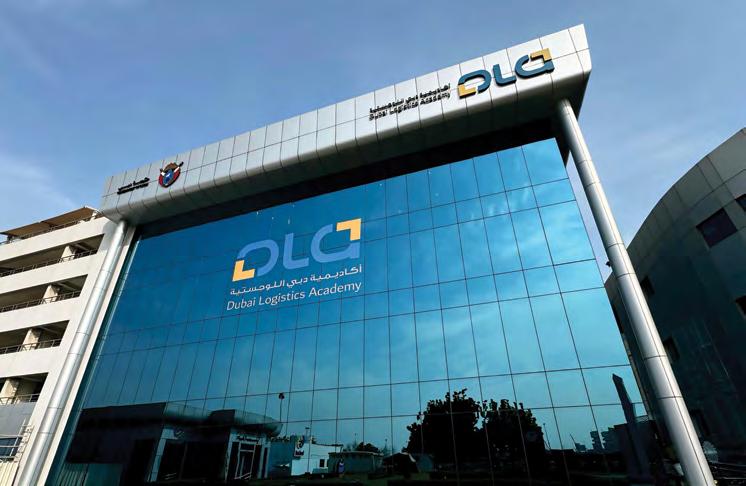
employees to equip them with the skills needed to meet the evolving demands of trade, investment, and logistics services.
The Academy is a transformational initiative aligned with Dubai Customs’ strategy to offer exceptional vocational training opportunities for those aspiring to excel in the logistics and customs sectors. The academy provides a wide range of professional programs and scholarships covering logistics services, supply chains, and trade. Its mission is to prepare a cadre of highly skilled professionals for multidisciplinary roles, reflecting insights from leading universities and global research centres.
The institution also facilitates employment opportunities through strategic partnerships with the private sector within the logistics sector. Its inaugural achievement includes launching a scholarship program in collaboration with strategic partners, enabling students to earn a bachelor’s degree in Global Trade, Customs, and Logistics. This program offers a comprehensive understanding of customs policies, procedures, supply chains, and logistics services, aligned with industry standards and requirements.
The launch of the Dubai Logistics Academy crowns Dubai Customs’ sustainable approach to training and qualifying human capital. It also supports the “Masar 33” initiative, which has paved the way for Emiratis to fill 119 diverse positions by enrolling in specialised professional programs and academic scholarships, enhancing their competitiveness and career progression in both public and private sectors under an ambitious strategy. Through the academy, Dubai Customs aims to leverage ideas and expertise from its partners in the logistics sector.
The Dubai Logistics Academy has been accredited by the Knowledge and Human Development Authority (KHDA) in Dubai. In a significant achievement, the academy has also received the “Continuing Professional Development” (CPD) accreditation from the United Kingdom. This recognition reflects its compliance with global standards and requirements for training and professional development. Securing the internationally recognized CPD accreditation
represents a strategic milestone that bolsters the status of the Dubai Logistics Academy as a prestigious academic institution of Dubai Customs. It positions the academy as a trusted academic destination offering programs and courses aligned with best practices, contributing to the preparation of skilled human resources and leadership for the demands of both local and global labor markets.
Dubai Customs, represented by the Dubai Logistics Academy and the Human Resources Division, maintains regular communication with the private sector to assess their talent requirements. Recently, a coordination meeting was held with leading private sector companies offering shipping, supply chain, and logistics solutions. During the meeting, discussions were held with company representatives to explore mechanisms through which Dubai Customs can support the integration of Emirati talent and enhance their competitiveness within the logistics sector.
The meeting featured a detailed implementation roadmap of Dubai Logistics Academy programs under the “Masar 33” initiative. The private sector companies welcomed the initiative, viewing it as a positive step towards strengthening public-private partnerships.
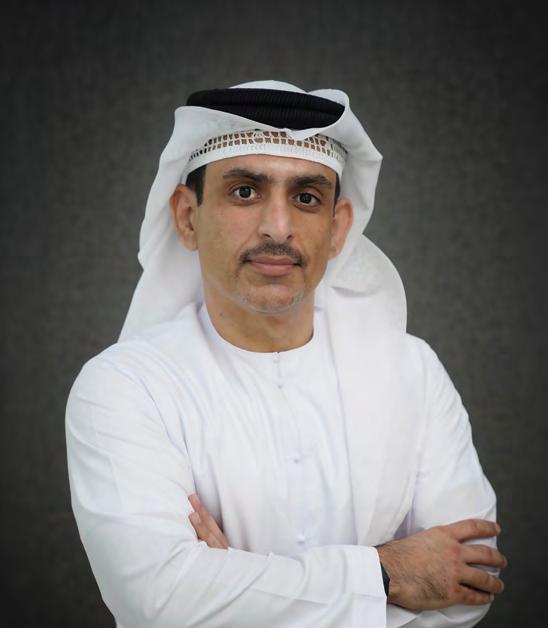
Mr. Mohammed Al Ghaffari, Executive Director: Human Resources Division, Dubai Customs

Words by: Vibha Mehta
The trucking industry stands at a crossroads, where the hum of diesel engines is giving way to the quiet surge of electric power. Once defined by grit, grease, and gallons of fuel, the industry is now embracing a new era—one powered by clean energy, cuttingedge technology, and a vision for a more sustainable future. But adaptation is never easy, and the road to electrification is paved with both promise and challenges.
A Silent Revolution on the Roads
For decades, the trucking industry has been the backbone of commerce, moving goods across endless highways, connecting cities, and keeping economies thriving. But with climate change concerns, stricter emissions regulations, and advancements in battery technology, the industry is experiencing a seismic shift. The diesel giants that once ruled the road are now sharing space with sleek, whisper-quiet electric trucks.
Major players like Tesla, Volvo, Daimler, and even traditional trucking manufacturers like Peterbilt and Freightliner are leading the charge, rolling out electric trucks that promise reduced carbon footprints, lower operational costs, and an entirely new driving experience. Yet, change is never without resistance. The industry, built on generations of diesel-powered tradition, is learning to navigate uncharted territory.
The Hurdles on the Highway
Transitioning from diesel to electric is no simple feat. Trucking companies are dealing with a complex maze of infrastructure requirements, high upfront costs, and concerns about range limitations. Unlike passenger EVs, which can afford a quick stop at a charging station, long-haul trucks operate on tight schedules where every minute matters. The fear
of running out of charge in the middle of nowhere looms large.
Charging networks, or the lack thereof, remain one of the biggest challenges. While major logistics hubs and urban centers are gradually seeing the rise of fastcharging stations, rural routes—often the lifeblood of long-haul trucking—remain largely unequipped. Charging an electric semi isn’t as simple as plugging in a car. It requires high-powered stations, grid stability, and, ideally, dedicated lanes for efficiency.
And then there’s the price tag. While electric trucks promise long-term savings on fuel and maintenance, their initial cost is significantly higher than diesel counterparts. For small and mid-sized trucking companies, making the switch isn’t just about sustainability—it’s a financial gamble.
For fleet operators, the decision to go electric isn’t just about compliance with new emissions laws. It’s about future-proofing businesses. Companies that ignore the shift risk falling behind as regulations tighten and competitors gain early-mover advantages. Many trucking firms are taking a hybrid approach, integrating electric trucks into their fleets while still relying on diesel for longer hauls.
Innovative solutions are emerging, with some firms partnering with renewable energy providers to install on-site solar-powered charging stations, reducing dependency on public infrastructure. Others are exploring battery-swapping technology, where instead of waiting hours for a charge, trucks can simply replace drained batteries with fully charged ones in minutes.
The shift is also driving job evolution within
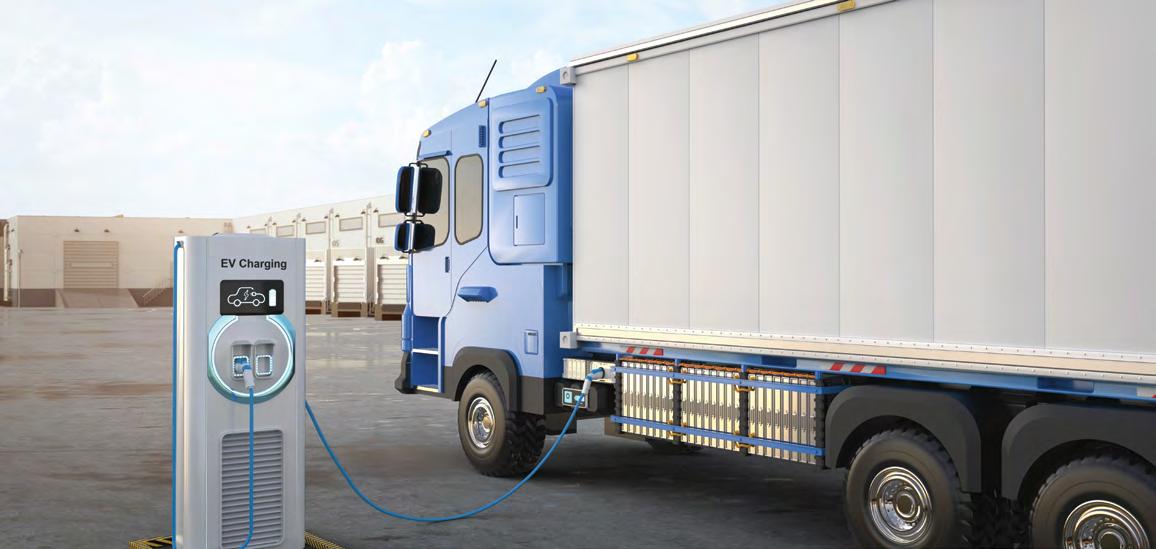
the industry. Mechanics who have spent years mastering diesel engines are now training in battery management and software diagnostics. Drivers, too, are adjusting to a new driving experience—one where torque is instant, acceleration is seamless, and there’s no roar of an engine underfoot.
The UAE is positioning itself as a leader in the region’s transition to electric trucking, aligning with its ambitious sustainability goals under the UAE Net Zero 2050 initiative. The government is actively promoting green mobility, rolling out policies and incentives to encourage fleet electrification. Major infrastructure investments are underway, with plans to expand EV charging networks, including highcapacity stations designed specifically for heavyduty trucks.
Initiatives such as the Dubai Green Mobility Strategy 2030 and Abu Dhabi’s Clean Energy Program are pushing for widespread adoption of electric and hydrogen-powered commercial vehicles. Meanwhile, partnerships between private logistics firms and government entities are fostering innovation, paving the way for efficient, zero-emission trucking solutions.
With regulatory frameworks becoming more stringent and sustainability mandates gaining traction, companies operating in the UAE must adapt or risk falling behind. The government’s proactive approach, combined with investments in smart logistics and renewable energy, is setting the stage for a future where electric trucking is not just viable—it’s inevitable.
Despite the hurdles, optimism runs high. Battery technology is advancing at breakneck speed, with solid-state batteries on the horizon promising longer ranges and faster charging. Hydrogen fuel cell trucks, another contender in the green trucking space, are being explored as an alternative for longhaul routes where battery-electric options may fall short.
Autonomous electric trucks, once the stuff of science fiction, are inching closer to reality. Companies like Einride and Waymo are testing self-driving electric trucks that could further revolutionize the industry, making transport cleaner, safer, and more efficient.
The industry is no stranger to transformation. From steam engines to diesel power, from manual transmissions to GPS-guided fleets, trucking has always evolved with the times. The shift to electric is just the latest chapter in its long, storied history.
The trucking industry’s transition to electric is not just about sustainability—it’s about survival. The world is changing, and with it, the expectations of consumers, regulators, and business owners. Companies that adapt will find themselves at the forefront of a cleaner, more efficient era of transport. Those that resist may struggle to keep up.
As electric trucks quietly roll onto highways, leaving behind the diesel fumes of yesterday, one thing is certain—the journey is just beginning. And like every great road trip, it’s not just about the destination, but the adventure along the way.
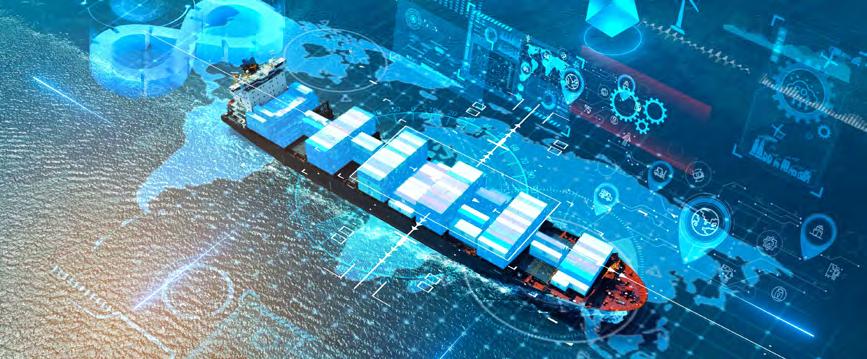
The logistics and supply chain industry is experiencing a major transformation, driven by the rise of artificial intelligence (AI) and centralised data systems. These advancements are helping businesses move goods with greater precision, turning previously complex and disorganised supply chains into highly efficient networks. In the Middle East, countries like the UAE and Saudi Arabia are taking bold steps to lead this change. With national initiatives like Saudi Arabia’s Vision 2030 and the UAE’s Operation 300bn, these nations are not only embracing cutting-edge technologies but are positioning themselves as global leaders in automation. Prioritising innovation can set new standards for efficiency, sustainability, and competitiveness in the region which could have a lasting impact on the global market.
The Role of Robotics in Warehouse Innovation
Robotics automates repetitive tasks such as picking, packing, and maintenance, improving speed and accuracy in warehouse operations. Technologies like Autonomous Mobile Robots (AMRs), Automated Guided Vehicles (AGVs), and Automated Storage and Retrieval Systems (AS/RS) help businesses manage higher order volumes while using space more effectively. For instance, AS/RS systems use up to 85% of available floor space, increasing storage efficiency. By 2025, autonomous robots are expected to manage half of all e-commerce orders, enabling businesses to reduce errors, handle demand spikes, and operate continuously without downtime.
As supply chains grow more complex, AI’s ability to analyse data, predict trends, and refine processes is becoming essential for businesses to stay competitive. For instance, Swisslog integrates AI into its warehouse
Rami Younes, General Manager, Swisslog Middle East
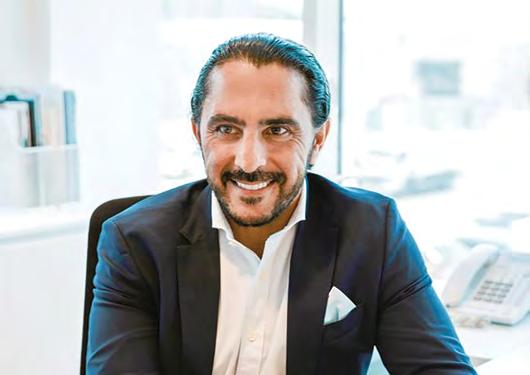
solutions to enhance operational efficiency and adaptability. Their “learning warehouse” concept employs machine learning algorithms to analyse unstructured data, recognise patterns, and autonomously adapt to new situations within the logistics system. This approach enables warehouses to make data-driven decisions, anticipate demand fluctuations, and streamline processes without rigid programming.
AI and centralised data are pivotal in driving sustainability efforts, allowing for more precise monitoring and optimisation of energy consumption. Automation technologies, such as high-bay pallet stacker cranes equipped with regenerative power systems, are integral to energy-efficient operations.
Centralised data enables these systems to continuously optimise performance, ensuring that energy is only used when needed. Additionally, robotics systems, which consume minimal energy—sometimes as little as 0.1 kW per hour—are driven by AI, which ensures these systems are running as efficiently as possible, contributing to a significant reduction in the carbon footprint of the industry. These innovations demonstrate the potential for creating sustainable supply chains and provide the insights needed to continuously improve operations and reduce environmental impact.
Big data enables businesses to gain realtime insights into inventory levels, order patterns, and potential bottlenecks. Advanced Warehouse Management Systems (WMS) powered by big data allow companies to optimise resources, reduce inefficiencies, and improve operational performance. Predictive analytics, including predictive maintenance, help minimise equipment downtime by identifying potential issues before they cause disruptions. Additionally, digital twin technology—virtual simulations of warehouse environments—allows businesses to assess various scenarios and plan accordingly. This data-driven approach ensures that warehouses can stay competitive by adapting to changing market demands and minimising risks.
The future of warehousing and logistics is being shaped by the adoption of robotics, AI, data analytics, and sustainable practices. Companies that embrace these technologies will be well-positioned to meet the growing demands of an increasingly complex supply chain environment. As the Middle East continues to usher in changes and innovation, businesses in the region can expect to see smarter, more efficient, and sustainable warehouse operations that not only meet current challenges but are also future-ready. In 2025, these technologies will be more than just trends—they will be the standard that drives the future of warehousing and logistics globally.

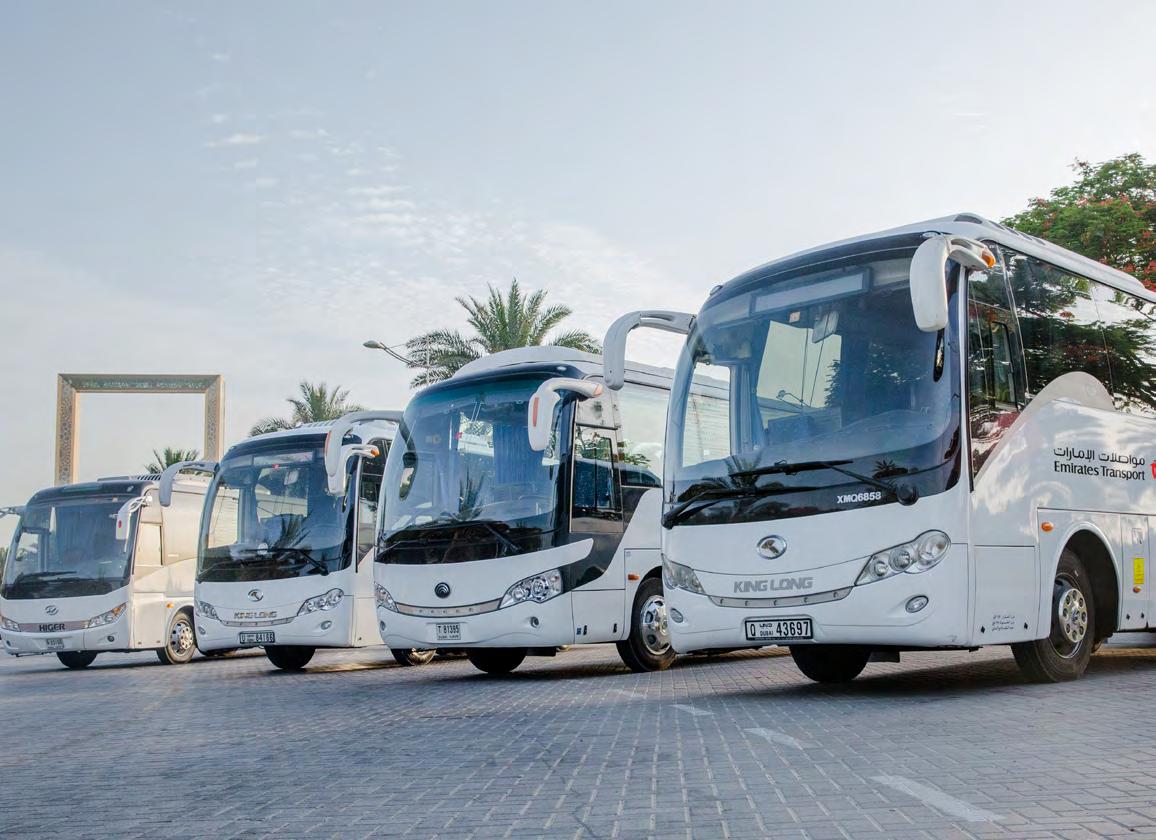
Transport, in conversation with LNME on his leadership quest and the transport industry in the UAE
Can you share more about your journey in the industry? What key experiences and milestones have shaped your career so far? My career spans over 15 years, with a significant portion of that time spent in the UAE. I began my journey in the UK with Enterprise Rent-ACar, progressing quickly through their graduate training program to become an area manager. This foundation in operational leadership helped shape my career as I moved into senior roles at Dollar Rent-A-Car and Avis Rent A Car in the UAE. I specialised in operational management, market expansion, and digital transformation. Over the years, I’ve led teams and contributed to major initiatives like introducing paperless systems and telematics in fleet management. Most recently, I’ve been privileged to serve as the Chief Transport & Lease Officer at Emirates Transport, overseeing operations across transport, vehicle leasing, and maintenance, which has been one of the most rewarding chapters in my career thus far.

What inspired you to take on your role at Emirates Transport, and what has been the most fulfilling aspect of your path so far?
The opportunity to take on a leadership role at Emirates Transport was incredibly compelling. The company has a strong reputation and is a key player in the UAE’s transportation and leasing industry. I was excited by the scale and diversity of the operations, and the chance to build on my experience in the rental and leasing sectors. One of the most rewarding aspects of my journey here has been leading the company through significant growth and diversification of services. I’m particularly proud of the strategic initiatives we’ve put in place, such as expanding our offerings beyond leasing to mobility on demand and digital solutions, which have positioned Emirates Transport as a leader in the industry.
The transport industry in the UAE has witnessed significant changes over the past decade. How have you observed its evolution, and what have been the key drivers of this transformation?
The UAE transport industry has seen substantial transformation, driven by factors like the rapid urbanisation of the country, a push toward digitalisation, and the increasing demand for sustainable, efficient mobility solutions. Over the past decade, we’ve moved toward more integrated and tech-driven solutions. Telematics, electric vehicles, and mobility-as-a-service have reshaped
how companies like Emirates Transport operate. Additionally, the public sector’s emphasis on digital government initiatives and sustainability has accelerated industry-wide innovation, pushing companies to adopt smarter, more efficient ways of managing fleets and serving customers.
As the industry has evolved, how has your leadership style adapted to address new challenges and opportunities?
As the industry has evolved, my leadership style has become more adaptive and collaborative. The increasing pace of change has required me to focus

Dominic Hagerty, Chief Transport and Lease Officer, Emirates Transport,
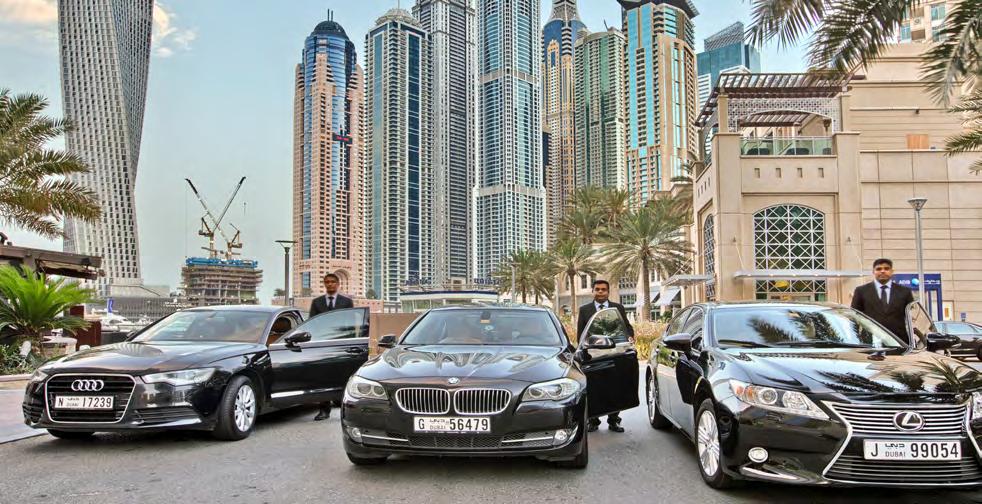
heavily on driving innovation while managing a diverse team. I’ve also embraced digital transformation as a core part of the business strategy. Leading digital initiatives and driving cultural change, particularly in areas like operational efficiency, have been a central focus. This requires constant learning and agility, as well as fostering a culture of empowerment, where teams feel encouraged to contribute new ideas and approaches to solve emerging challenges.
What is your vision for Emirates Transport over the next period?
My vision for Emirates Transport is to solidify our position as the UAE’s leading provider of transport and leasing services while diversifying our service offerings and driving digital innovation. I see the future of mobility as being increasingly customer-centric and tech-
driven, with a greater focus on sustainable and flexible solutions like electric vehicles and ondemand services. We will continue to lead in operational excellence, maintain our commitment to high service standards, and expand our portfolio of offerings to include new mobility services that meet the evolving needs of the UAE market.
What advice would you give to aspiring leaders in the transport and logistics industry?
My advice to aspiring leaders would be to embrace continuous learning and stay adaptable. The transport and logistics sector is evolving rapidly with technological advancements, regulatory changes, and customer expectations. Building a strong foundation in operations and customer service is key, but equally important is the ability to lead teams through change, foster innovation, and continuously
seek improvements. Focus on developing leadership skills that help you manage diverse teams and navigate complex challenges, and don’t be afraid to champion new technologies or business models that can improve the efficiency and sustainability of the industry.
“I am truly passionate about the future of the transport industry, particularly in the UAE, where innovation and growth are constant. At Emirates Transport, we’re at the forefront of transforming how people and goods move, and it’s an exciting time to be part of that journey. I look forward to continuing our work of creating world-class services that enhance the daily lives of people in the UAE and contribute to the nation’s growth.”


On 30 January, LNME hosted an exclusive roundtable, Leadership in Times of Change, at Taj Exotica Resort & Spa, The Palm, Dubai. Bringing together five distinguished leaders from the logistics industry, the event provided a dynamic platform to explore some of the most pressing topics shaping the sector today - leadership, supply chain and e-commerce, and technology.
In an era of rapid transformation, live discussions and in-person exchanges offer unparalleled value, fostering deeper insights and real-time problem-solving, something that one-way information channels like forums, articles, and news reports often lack. The roundtable was designed not just as a conversation among experts but as a conduit for valuable industry knowledge, both for those in the room and for you, our readers.

The lineup of speakers included:
Shailen Shukla, Supply Chain Director, Omar Kassem Alesayi Group (OKAG)
Dr. Shereen Nassar, Global Director of Logistics Studies and Director of MSc Logistics and Supply Chain Management Suite, Heriot-Watt University Dubai
Andy Palanisamy, Chief of Innovation & Technology / Board Advisor, Obsession
Nissrine Elqobai, CEO & Co-Founder, ENY Consulting
Nadeem Qureshi, Commercial Attaché - UAE, LogiPoint
Each one of these leaders gifted the room with profound insights and invaluable statements, their passion evident in every word as they spoke from experience and conviction. Their deep engagement brought the discussion to life, making it more than just a conversation, it was a true exchange of knowledge. A compelling debate also emerged around technology, which we will explore further. Enjoy the session!
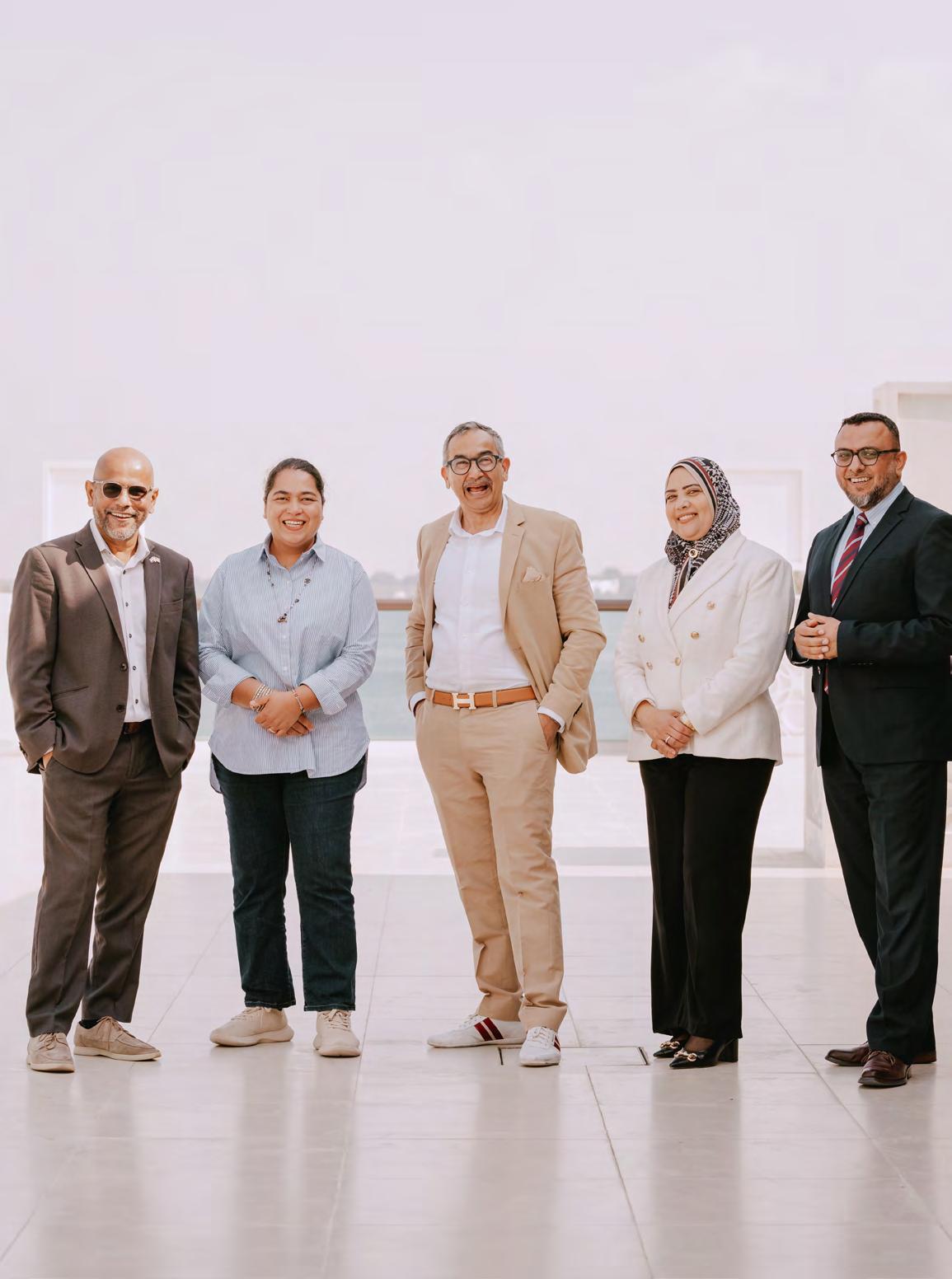
In today’s rapidly changing logistics and supply chain industry, leadership, efficiency, and technology have become more critical than ever. To stay ahead in this fast-paced environment, there are certain fundamental principles that professionals must continuously remind themselves of. What are these key factors that can drive success and set industry leaders apart?
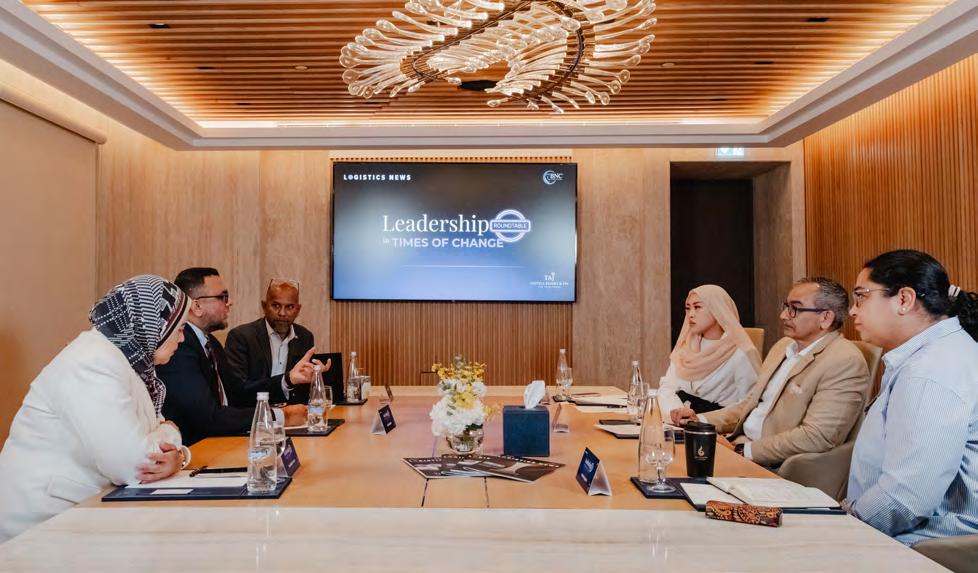
To begin with, Andy Palanisamy, Chief of Innovation & Technology / Board Advisor, Obsession, provides key insights into what defines a truly great leader in today’s logistics world. He begins with the idea that leadership starts with setting the tone at the top, which in turn shapes the entire organisationespecially when times are uncertain. “Leaders need to think ahead,” he asserts, bringing attention also to
the importance of flexibility and embracing change.
Furthermore, with technology and AI reshaping the industry, he stresses that leaders can no longer afford to simply delegate; they must remain hands-on and tech-savvy. “You’ve got to be involved, not just in the tech, but in every part of the organisation,” he adds.
He also underscores the need to prioritise the customer, ensuring that solutions serve the collective,
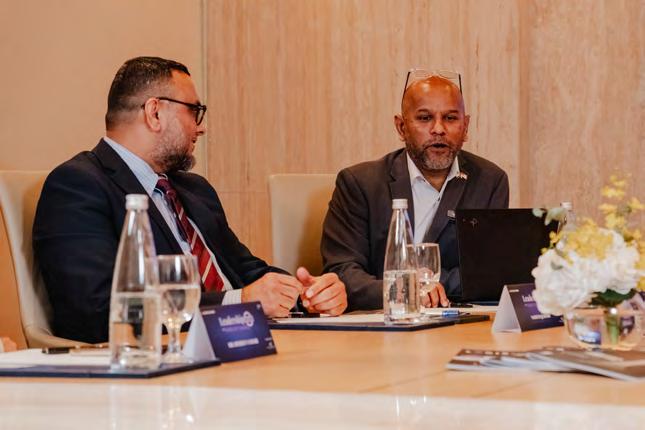
not just a select few. Yet, perhaps his most impactful point is the necessity of resilience. “If you don’t react and adapt quickly, it could spell disaster,” he says, explaining that the ability to bounce back from adversity truly sets exceptional leaders apart. In Andy’s view, success is driven by a combination of vision, adaptability, tech leadership, customer focus, and resilience.
Nadeem Qureshi, Commercial Attaché - UAE, LogiPoint, however, tackles this point going back to some of the fundamentals that define leadership. To him, leadership at its heart is still about people. Thus, for every leader, it is vitally important that they are people centric, that they have got the greater good at the heart of their vision, their decision making, and their strategies.
“If they are not doing that, then they are not really leaders. They may excel in some metrics, but if leadership isn’t about people and achieving something greater than
what an individual or organisation alone can accomplish, then it’s not true leadership,” Nadeem elaborates.
In addition, he touches on the significance of a truly distinctive trait - “unlearning.” The capacity to absorb new information is crucial, but equally important is the ability to let go of outdated knowledge. Collaboration, too, is essential to Nadeem. “Leaders must acknowledge that they can’t do it all alone, they can’t do it themselves. They’re going to have to build teams, to rely on people and, most importantly, to collaborate with other stakeholders,” he comments. Next, Dr. Shereen Nassar, Global Director of Logistics Studies and Director of MSc Logistics and Supply Chain Management Suite, Heriot-Watt University Dubai, pinpoints the need for a deep, end-to-end understanding of a business before anything else. “The most significant challenges businesses face come from a lack of understanding of their
own operations,” she explains. Leaders should ensure they build a comprehensive internal knowledge base before looking at external factors, not only at the top but throughout the organisation.
She emphasises the importance of open communication and a bottom-up approach, saying: “It’s crucial to have a common understanding among all employees, not just leadership, so that everyone is aligned and aware of the strengths and weaknesses of the business.”
Emotional intelligence is another key trait she emphasises. “Leaders must embrace change and help others adapt,” she says, noting that effective leaders should resolve conflicts, show empathy, and foster open communication. Dr. Shereen believes that active listening is crucial, as those on the ground might have better insights than those at the top.
Shailen Shukla, Supply Chain Director, Omar Kassem Alesayi Group (OKAG) agrees to the previous talking points. For example, he says: “You may have the vision and you may have the strategy, but your team is going to execute it,” highlighting the importance of people-centric leadership. Keeping the team engaged and challenged is extremely important “We all know that routine work can be boring. How do you keep them excited? Keep delegating, keep giving them challenges, keep asking them to innovate so that it feels as if they are doing the thing.”
Adding on the previous points, he stresses the need to stay ahead of
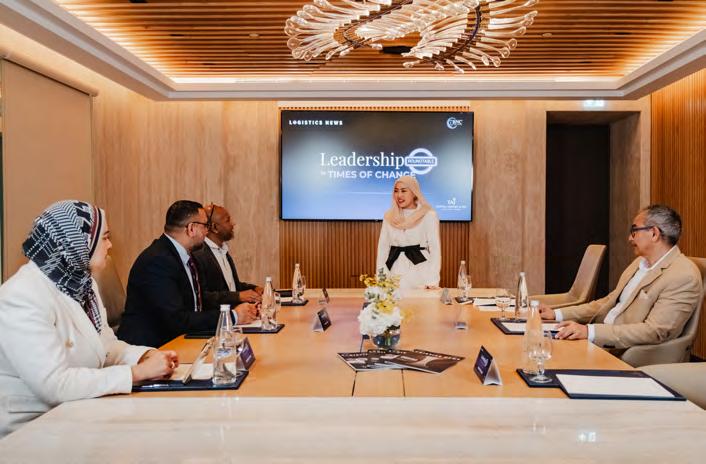
technology, quoting William Gibson: “The future is here - it’s just not evenly distributed.” Leaders must ensure they’re not stuck in the past while their competitors embrace new tools.
Shailen also believes that leaders should foster sustainability in every aspect of business. “Small actions like reducing plastic or using reusable bags make a big difference,” he adds, calling for leaders to motivate and guide their teams towards lasting change.
Nissrine Elqobai, CEO & CoFounder, ENY Consulting, also adds to the discussion her point of view. She highlights that one of the most crucial qualities for a leader in today’s logistics world is the ability to accelerate change management. She acknowledges that resistance to change remains one of the biggest challenges, making HR one of
the most vital departments in any organisation. “We can’t manage today’s workforce the same way we did 20 years ago,” she explains, pointing out that younger generations prioritise value and purpose over longevity in a single company. To bridge the gap between experienced professionals and fresh talent, she advocates for continuous learning and mentorship.
For Nissrine, the best asset in any company is its human capital, “We cannot do it alone,” she asserts. Success lies in assembling a knowledgeable, proactive team that can navigate unpredictable challenges. “It’s the people who drive innovation and make the right decisions when faced with uncertainty,” she adds.
She also underscores the necessity of balancing experience with knowledge. While seasoned professionals
bring valuable insights, true leadership comes from those who can think ahead and predict change. “The difference between someone with experience and someone who can act proactively is knowledge,” she notes. Ultimately, she believes that effective leaders must invest in top talent, foster collaboration, and create an environment where employees are empowered to take ownership and drive transformation.
Striking the Perfect Balance: Speed, Cost, and Quality Nadeem offers his perspective from a different approach: “The biggest cost is a lost order. How do we ensure there’s no decline in orders? Everything else follows from that,” he says. He spotlights that, especially during crises such as COVID and the Red Sea disruption, LogiPoint had to be proactive in finding new solutions and optimising resources. “We had to come up with new ideas, design new processes, and build temporary infrastructure,” he shares. The focus on delivering, no matter the cost, was a constant theme: “Any cost that comes along is not a cost; it’s an investment.”
Dr. Shereen, on the other hand, stresses the importance of strategic approach and understanding the specific needs of different businesses. “One size doesn’t fit all,” she notes, urging companies to be selective when determining which products or customers require fast responses. “Speed adds to revenue, but we also need to focus on optimising costs. Partnerships, collaboration,
and AI can streamline operations,” she suggests. The key takeaway: the right decision-making and a proactive mindset are crucial for long-term success.
Technology, of course, emerged as a cornerstone of efficient logistics. “Leverage technology,” Shailen insists. He details how implementing Warehouse Management Systems (WMS) and demand planning technology led to optimal inventory management and reduced inventory losses. “During the Red Sea crisis, we had to forget about cost and focus on collaboration to get goods in on time,” he recalls. In his view, technology not only improves efficiency but also fosters strategic partnerships, especially in times of crisis. “We used technology to complete more deliveries in less time and to ensure that our drivers were focused on the right areas,” he shares.
Following on Shailen’s idea where he stresses on the importance of technology for cost efficiency, Andy agrees, however, he presents a counter argument and a downside to this.
On one side, we see technology as the ultimate efficiency driver. It slashes operational costs, enhances decision-making, and allows businesses to scale at unprecedented levels. But the counterpoint? Over-reliance on technology comes with its own risks.
Have we become too dependent on these tools? And what happens when they fail?
Andy points out a personal experience: “If you take my laptop away from me right now, I’d be flying blind. All my notes, my work - it’s all stored digitally. And that’s the issue. The moment technology falters, do we have the ability to function without it?”
He notes how AI tools like ChatGPT have changed how we operate, sometimes at the expense of critical thinking. “Ever since ChatGPT came in, I find myself not double-checking information. I take it as truth. But the reality? AI hallucinates. It fabricates facts. And if we don’t validate what it produces, we risk making flawed decisions.”
Technology is undoubtedly powerful, but the real question is: how much control should we retain? “Every day, we are surrounded by more systems, more automation. But at what point do we lose oversight? Do we let AI dictate our decisions, or do we use it as a tool to enhance our expertise?”
Shailen on the other hand, says: “We were using Excel for demand planning, convinced we were doing a perfect job. Then we implemented a dedicated demand planning software, and suddenly, our accuracy jumped by 25%. We were shocked. What we thought was optimised was actually suboptimal. The same thing happened when we rolled out a lastmile delivery solution—we thought we had maximised efficiency, but technology showed us we could reduce our vehicle needs by 40%.”

“Technology is here to stay, and it will only get more advanced. But at the end of the day, interpreting data is key. If you don’t understand how to analyse the numbers, you can’t make the right decisions. This is the real risk of over-reliance.” LEADERSHIP
Dr. Shereen also presents her views saying:
Dr. Shereen also adds: “Students today rely on AI for coursework and it’s full of false references, because they don’t fact-check. They just utilise AI and it comes up with something that they don’t really know. This is a huge risk on institutional knowledge and the knowledge of the business.”
Nadeem then poses a provocative question: Do we really have a choice? Is ‘over-reliance’ even the right term? “Compared to yesterday, we may be over-reliant. But compared to tomorrow, we’re actually under-reliant. Technology is evolving so fast that what seems excessive today will be the bare minimum in the future,” he says.
This led to a critical insight: We need to stop thinking about ‘over-reliance’ on technology and start seeing it as the natural evolution of efficiency. “Saying we should avoid over-reliance is like saying we should keep a horse at home just in case our car breaks down. It’s a redundant argument. The world is moving forward, and businesses that fail to adapt will be left behind,” Nadeem mentions.
For Nissrine, she highlights that while technology is essential, it cannot replace human intelligence and decisionmaking. She acknowledges that people sometimes rely on technology out of fatigue or convenience but argues that true expertise comes from proactive thinking, not just experience. “We are not over-relying on technology; we are just human. Sometimes we get tired, but in the end, experts—people with passion and a sense of responsibility—will always doublecheck.”
She stresses that technology is only as good as the people using it. “Technology cannot exist without us. The key is to have the best team, the best minds, who can critically assess and act.” She compares this to Google Maps—it can reroute after an accident, but it cannot predict one before it happens. Likewise, businesses must be agile, relying on human expertise to foresee and mitigate risks.
For her, the solution is not to avoid technology but to complement it with strong, knowledgeable teams. “The best talent, combined with the right tools, is what ensures success. It’s not about blindly following technology; it’s about using it wisely with the right people leading the way.”
The conversation could go for hours, but a middle ground for the debate can be: Technology is indispensable, but it should be a complement, not a crutch. We need to maintain fundamental skills, ensure we understand the data we’re working with, and remember that at the end of the day, it’s the human element that makes the final decision. Technology is a tool, an incredibly powerful one, but its impact depends entirely on how we wield it.
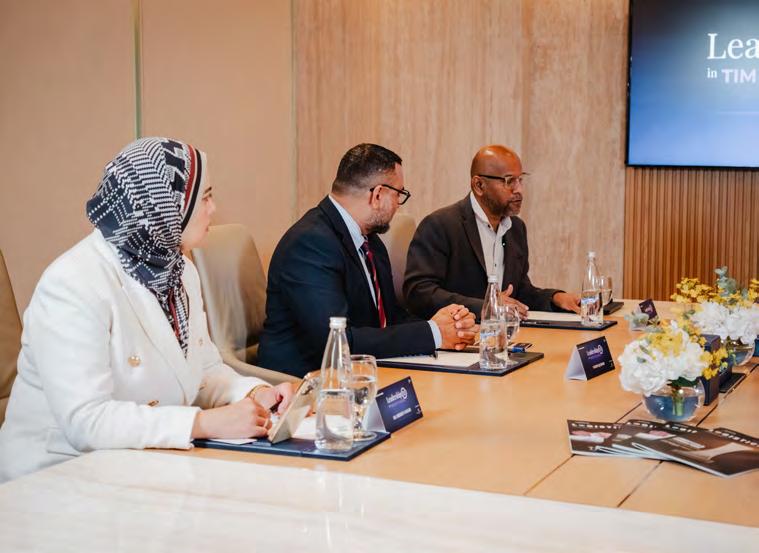
LEADERSHIP IN TIMES OF CHANGE
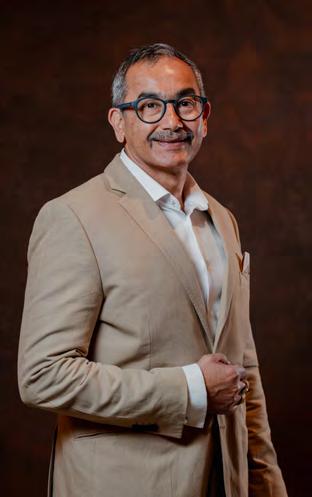

Shailen Shukla, Supply Chain Director, Omar Kassem Alesayi Group (OKAG)
Shailen Shukla, an alumnus of Delhi University and IIM Ahmedabad, is a seasoned supply chain and logistics professional with over 30 years of experience. Currently, he serves as the Supply Chain Director at OKAG in Jeddah, KSA.
Previously, he held leadership roles at PicTruc LLC, Admiral Mobility, and JECL Logistics (Jumbo Electronics Group). He has also worked with Reliance Logistics, Vedanta, Grasim, Brightpoint, and TNS/Kantar India. An award-winning industry leader, Shukla has been recognised with multiple SCATA awards and the Logistics Leader of the Year award.
“I
live, I breathe, I sleep supply chain and logistics. I’ve driven 60 tunnels myself and operated forklifts - I like to get my hands dirty.”
- Shailen Shukla
Dr. Shereen Nassar, Global Director of Logistics Studies and Director of MSc Logistics and Supply Chain Management Suite, Heriot-Watt University Dubai
Dr. Shereen Nassar is a logistics and supply chain expert with extensive academic and research experience. She holds a PhD from Bath University, UK, specialising in the impact of advanced tracking technology, such as Radio Frequency Identification (RFID) in attaining a sustainable supply chain competitive advantage. Before joining HeriotWatt University Dubai, she led logistics programmes in the UAE and was a visiting scholar at Heriot-Watt Edinburgh.
Her research focuses on sustainability, supply chain resilience, blockchain, and smart cities. With international teaching experience across the UK and MENA, she has published extensively in her field.
“My aim was always to help our students be wellprepared for this field, focusing on closing the gap between industry and academia, and ensuring they really speak the language of industry.”
- Dr. Shereen Nassar
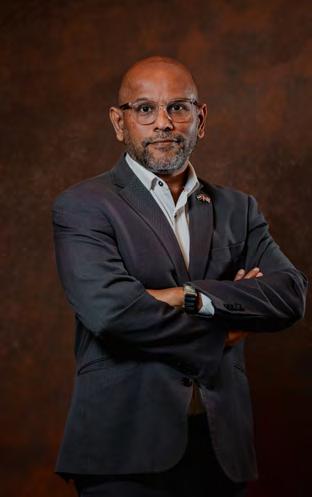
Andy Palanisamy, Chief of Innovation & Technology / Board Advisor, Obsession
Andy Palanisamy is a technologist and public policy expert with over 25 years of experience in mobility innovation and smart city technologies. He advises Obsession Breakthrough on emerging technologies in smart cities, infrastructure, and urban mobility while also developing AI-driven solutions for the education sector.
Previously, he led smart cities and innovation at Parsons Dubai, managed mobility engagements at Ford Motor Company, and contributed to intelligent transportation systems in the U.S. Department of Transportation and NASA’s Jet Propulsion Laboratory.
Andy holds a Master’s in Public Administration from Harvard Kennedy School and a Bachelor’s in Civil Engineering.
“I’ve always had a front-row seat to emerging technologies, ensuring that public and private sectors are ready for what’s coming. Every morning, I wake up and see what happened in the world of AI while I was asleep - and get ready for it.”
- Andy Palanisamy

Nissrine Elqobai, CEO & Co-Founder, ENY Consulting
Nissrine Elqobai is a seasoned supply chain expert with 26+ years of global experience, excelling in cost-efficient management, vendor relations, and project oversight across Fortune companies and top Middle Eastern conglomerates. Her career spans 30 countries, working with Carrefour, General Mills, Toyota, Majid Al Futtaim, and more.
In 2019, she co-founded ENY Consulting, offering supply chain solutions across Europe, the Middle East, and Africa, serving clients like DP World, MAF Carrefour, and Savoye. A mentor and industry thought leader, she speaks seven languages and holds advanced degrees in Supply Chain Management and Information Systems.
“I’ve
worked in more than 30 countries from Japan to the US to Germany to Kenya, and the beauty of this roundtable is that we continue to ask questions, listen, and evolve.”
- Nissrine Elqobai
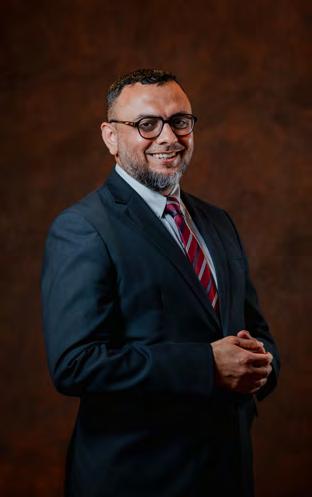
Nadeem Qureshi, Commercial Attaché - UAE, LogiPoint | Founder & CEO, Bizgrow Marketing
Nadeem Qureshi is a logistics industry veteran with over 25 years of experience in the Middle East. As the Commercial Attaché UAE for LogiPoint, Saudi Arabia’s leading developer of logistics parks and special economic zones, he plays a key role in driving innovation and infrastructure development. LogiPoint has been at the forefront of building the Kingdom’s logistics ecosystem, from establishing the first and largest bonded and re-export zone to delivering state-of-theart facilities for industry leaders like Aramex and Naqel. He is also the founder of Bizgrow Marketing, a consultancy focused on strategic business growth.
“Every day is an opportunity to learn. Every day is an opportunity to meet new people. As a planet and as a race, our entire hope rests in leveraging people”
- Nadeem Qureshi




Brian Strong, Chief Transformation Officer at SADAFCO, unveils the company’s sustainability vision, highlighting their use of hydrogenpowered vehicles and what the future holds for the brand
Founded in 1976, Saudia Dairy and Foodstuff Company (SADAFCO) has grown into a prominent food manufacturer, distributor, and retailer headquartered in Saudi Arabia, with a presence across the Middle East. The company dominates the Saudi market in Long Life Milk, Tomato Paste, and Ice Cream, offering its key products under the renowned Saudia brand. The company aims to work on “Nurturing Generations with Goodness and Happiness.”
SADAFCO is actively working to align its logistics strategy with the sustainability goals of Saudi Vision 2030 by prioritising eco-friendly practices and technological innovations that reduce carbon emissions and optimise operational efficiency. Vision 2030 emphasises a commitment to environmental stewardship and economic diversification. By adopting sustainable logistics solutions like autonomous hydrogen-powered vehicles, SADAFCO is contributing to reducing carbon emissions, enhancing energy efficiency, and supporting the Kingdom’s broader vision of creating a more sustainable and green economy. The company is also focused on improving resource utilisation, streamlining supply chain operations, and minimising waste, aligning with the national commitment to sustainable development and a circular economy.
Autonomous hydrogen-powered vehicles are at the forefront of SADAFCO’s sustainability strategy in logistics. These vehicles significantly reduce reliance on fossil fuels, leading to lower greenhouse gas emissions and a reduced carbon footprint. They also offer operational efficiency improvements due to their ability to operate without human intervention, which minimises human error and optimises route

planning for faster and more efficient deliveries. The use of hydrogen as a fuel source further supports sustainability efforts, as hydrogen fuel cells produce zero emissions during operation, contributing to a cleaner environment. Additionally, these vehicles are more energy-efficient than traditional diesel-powered trucks, reducing operating costs in the long term while advancing SADAFCO’s commitment to innovation and environmental responsibility.
Integrating autonomous hydrogenpowered vehicles into logistics operations can present several challenges, including the high initial costs of adopting new technology, infrastructure limitations such as the need for hydrogen refueling stations, and the regulatory landscape that governs autonomous vehicles. Moreover, there may be technical challenges related to vehicle reliability, maintenance, and ensuring seamless integration with existing logistics networks. To address these challenges, SADAFCO worked closely with technology and energy partners to invest in hydrogen infrastructure and ensure proper maintenance and support for these new vehicles. Collaborations with industry experts and continuous research and development in autonomous vehicle technologies have been essential in overcoming these obstacles. Additionally, adapting the workforce through training and reskilling is necessary to manage and operate these advanced vehicles effectively.
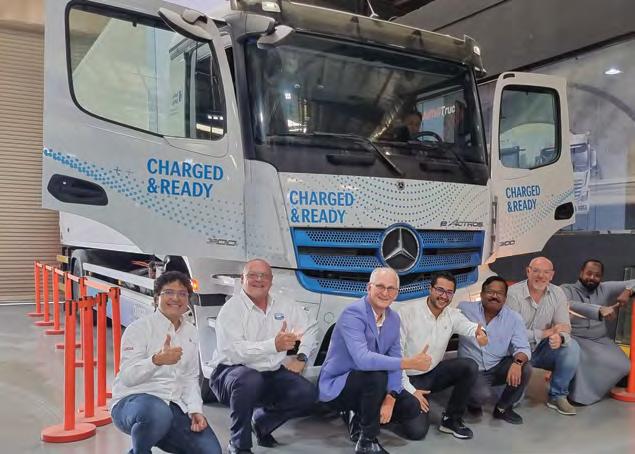
technologies can stimulate job creation in green industries, such as renewable energy and clean transportation, and position Saudi Arabia as a leader in sustainable logistics in the region. Moreover, the efficiency gains from autonomous vehicles can reduce transportation costs for businesses, fostering greater economic growth and attracting international investment in the green economy.
The adoption of eco-friendly logistics and hydrogenpowered vehicles significantly contributes to reducing carbon emissions, which is a critical goal in Saudi Arabia’s pursuit of sustainable development. These vehicles help cut down on air pollution and improve air quality, especially in urban areas, by replacing traditional diesel trucks with zero-emission alternatives. Environmentally, the use of hydrogen fuel supports the Kingdom’s strategy to diversify its energy sources and reduce dependence on oilbased fuels. Economically, the shift toward cleaner
The next step for SADAFCO is likely to involve expanding the adoption of autonomous hydrogenpowered vehicles and scaling their deployment across the company’s entire logistics network. This could involve further investment in hydrogen refueling infrastructure and collaborations with technology providers to optimise vehicle performance and reduce operational costs. In the future, SADAFCO may explore integrating more advanced technologies, such as electric trucks or hybrid solutions, depending on the evolution of the market and energy infrastructure in Saudi Arabia. The company is also likely to invest in data-driven technologies that enhance route optimisation, vehicle performance tracking, and predictive maintenance. Ultimately, SADAFCO’s eco-friendly logistics will evolve to become a more integrated part of its global supply chain, contributing to long-term sustainability and operational excellence.
Eduardo Montero, CEO Middle East for TK Elevator, champions the company’s cutting-edge vertical mobility solutions, positioning TKE as a pivotal force in shaping the future of the industry across the rapidly growing Middle East
TK Elevator (TKE) has established itself as a global leader in vertical transportation. Its strategic investments in manufacturing, research, and development facilities have enabled it to enhance its capabilities and respond effectively to market demands. With operations in key regions worldwide, TKE is wellpositioned to serve its diverse customer base.
Focusing on the Middle East, the company has been actively present in the region since 1982, starting its journey in Saudi Arabia. Today, it has established a direct presence in seven countries: the UAE, Saudi Arabia, Qatar, Bahrain, Kuwait, Jordan, and Egypt. With approximately 2,000 employees across these nations, the company is dedicated to driving innovation and excellence in vertical transportation throughout the region.
TK Elevator has been recognised with numerous awards for its innovative mobility solutions, including two prestigious accolades at the Elevator World Project of the Year Awards 2025. The company clinched first place in both the Escalator New Construction category and the Moving Walks category. Last year, it was also awarded the 2024 Systems Awards by the Council of Tall Buildings and Urban Habitat (CTBUH), alongside Foster + Partners,
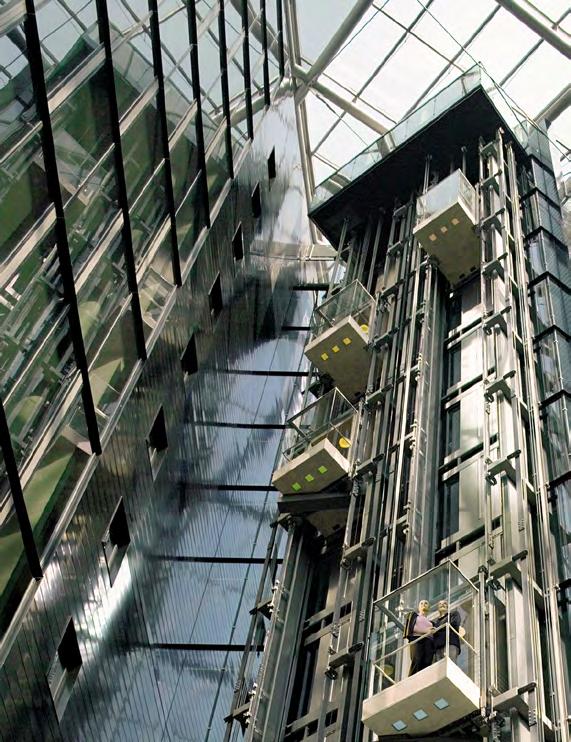
thanks to its uniquely innovative TWIN systems installed at Qatar’s Lusail Plaza Towers.
Among these achievements, it is worth highlighting the Old Doha Port Cruise Terminal project, which was just recently awarded Project of the Year in the Escalator New Construction category.
For this project, TKE was entrusted with designing and installing 10 passenger lifts, eight escalators, and four moving walks. Its solutions ensure safe and efficient travel for up to 12,000 passengers daily from two mega cruise ships on busy days. The awardwinning escalators play a unique role as they connect two terminal buildings through a stunning aquarium tunnel.

The installation of these escalators within the aquarium tunnel presented exceptional challenges. It could only install them after the aquarium was fully completed and successfully passed leak tests, which ruled out conventional installation methods. To meet this challenge and deliver results that met the firm’s customer’s expectations, TKE employed advanced design and engineering solutions. This included reinforcing escalator trusses, adding extra supports, and splitting the escalators into

multiple sections to ensure all safety and quality standards were upheld despite challenging conditions.
TKE’s velino escalator was chosen for its specialised design tailored for heavy-duty and high-traffic applications while providing world-class comfort and safety for passengers. Given the constant flow of travelers heading to mandatory customs clearance through this tunnel each day, the robust features and reliability of the velino escalator are
essential for ensuring an efficient passenger experience.
Among all of TK Elevator’s innovative products, Eduardo Montero, CEO Middle East for TK Elevator focuses on a few that are particularly relevant to the Middle East market. This region has garnered significant attention for its skyscrapers and largescale development projects, and the rapid modernisation occurring here—especially in the construction of new

transportation infrastructure projects—makes vertical mobility solutions increasingly vital.
In the high-rise segment, TKE is a leading player with unique innovative solutions like its TWIN and high-speed elevators. The TWIN system, which operates two independent elevator cars in a single shaft, maximises space efficiency and reduces wait times. This technology has been successfully implemented in several high-profile projects (such as Latifa Tower in UAE, PIF Tower in Saudi Arabia, Lusail Plaza Towers in Qatar) in the Middle East, demonstrating its effectiveness in dense urban environments.
TKE also plays a significant role in infrastructure development globally. It has contributed to major projects such as key airports and metro systems across the region, namely in Dubai, Doha, Riyadh, and Cairo just to mention a few. These projects highlight its commitment to enhancing urban mobility and supporting largescale infrastructure needs.
Another standout innovation is TKE’s iWalk, which recently won the Project of the Year award for its installation at Hong Kong
International Airport. The iWalk is a fully modular moving walk solution that eliminates the need for deep pits, making it easier to transport components and reducing installation time. Its design not only enhances passenger convenience but also addresses logistical challenges effectively.
All these innovations stem from TKE’s customer-centric mindset. From the product design stage to pre-sales, installation, and after-sales service, the company always strives to understand its customers’ needs and provide tailored solutions that simplify their experiences.
The Middle East has been a focus region for the industry, over the past several years. Most recently, TKE experienced a significant development of the market in Qatar, leading up to the organisation of several global events and sports tournaments in the country. In UAE, the market has been on a continuous steady growth in most market segments, while Saudi Arabia is currently getting the bulk of attention thanks to the sheer volume and high profile of some of the projects being announced and under execution.
In UAE, the company has recently been awarded several largescale residential projects, while continuing its work at Dubai Marina’s Ciel Tower which will be the World’s tallest hotel upon completion. In Qatar, the business has supplied several of its TWIN systems at Lusail Plaza Towers, as well as elevators and escalators for Lusail Stadium. When it comes to Saudi Arabia, the company actively participates in several of the mega projects being put forward all across the Kingdom.
For TK Elevator, urbanisation is the primary growth driver of the elevator and escalator industry, with over 200,000 people moving to cities every day and more than 900,000 new elevators and escalators installed annually. The Middle East is home to advanced cities featuring some of the tallest buildings in the world, while many regions are undergoing rapid development. Infrastructure projects such as metro and railway systems, along with largescale developments like stadiums, offices, and transportation hubs, are forming the backbone of urbanisation in this region. TK Elevator is an industry expert in supporting urban growth.
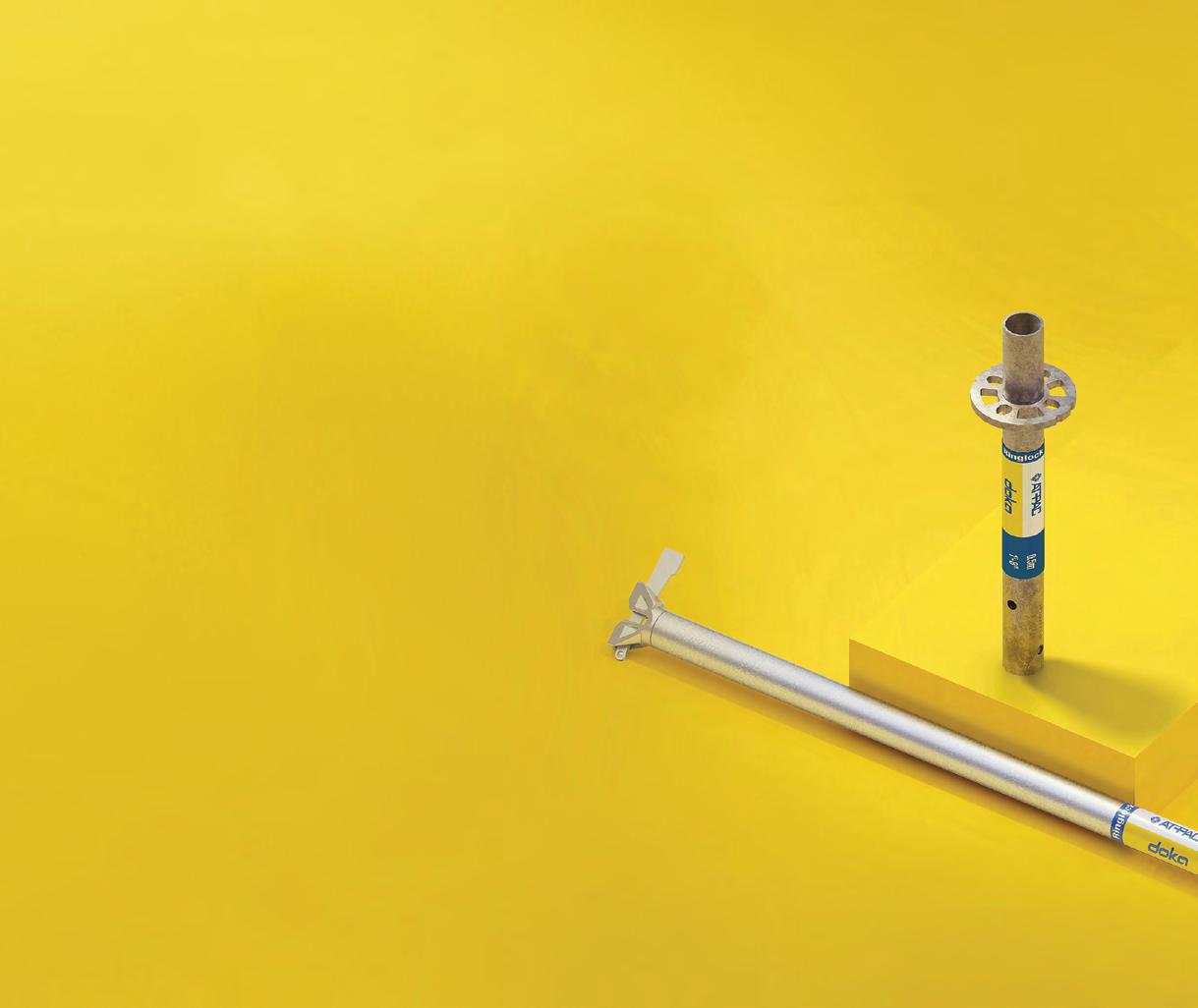

Require formwork and scaffolding? Check out Doka’s extensive list of products and systems, which now includes scaffolding for a variety of applications. At Doka, our philosophy is to provide a broad range of services under one umbrella based on a growing demand for single-source solutions that adhere to the highest standards.
/DokaMEA /company/doka-middle-east-africa /doka_mea
meaapmarketing@doka.com | www.doka-me.com

Pieter Feenstra, CEO - EMEA Region, Addverb, sheds light on how the fusion of AI and robotics marks the dawn of a new era in logistics, addressing current challenges while preparing for future needs
The logistics sector has witnessed a paradigm shift with the introduction of AI and robotics, altering the very foundation of conventional practices. In a world
dominated by e-commerce and international trade, companies are continuously looking to deliver products quicker, more precisely, and economically. AI and robotics have been the prime drivers for this change.
Addverb’s adoption of AI technology in robotics is a reflection of these innovations. Through the integration of machine learning algorithms and computer vision in their robotic systems, Addverb is able to ensure that its offerings are not just smart but can also adapt in accordance with dynamic operating environments.
Pieter Feenstra, CEO of the EMEA region of Addverb, aptly says:
“The combination of AI and robotics is the beginning of a new era for logistics. This combination
not only solves the issues of today but also foresees the demands of tomorrow, enabling companies to remain ahead in a world of constant change. We’re proud to offer solutions that not only enhance efficiency but also cater to diverse industry needs, marking a milestone in flexible automation.”

Pieter Feenstra, CEO - EMEA Region, Addverb
Addverb’s innovative robots include Trakr, a quadruped robot designed for search & rescue, surveillance, and inspections, allowing it to reach places beyond human capability. Syncro, an advanced collaborative robot (cobot) that brings seamless humanrobot interaction to the forefront. It prioritises a secure working environment through advanced safety features, while its intuitive interface ensures ease of use for operators of all skill levels. Meanwhile, Heal, Addverb’s medical cobot, a gamechanger in healthcare innovation. Engineered to transform patient care, it seamlessly integrates into rehabilitation centres, hospitals, clinics, and even home care settings. Through these innovations, Addverb continues to reinforce its commitment to addressing industry-specific challenges with cuttingedge technology.
Looking ahead to 2025, humanoid robots are moving
from science fiction to reality. Advances in AI, natural language processing, and robotics are positioning them at the forefront of customer service, healthcare, and industry.
In logistics, they can complement traditional robotic systems by handling complex tasks requiring
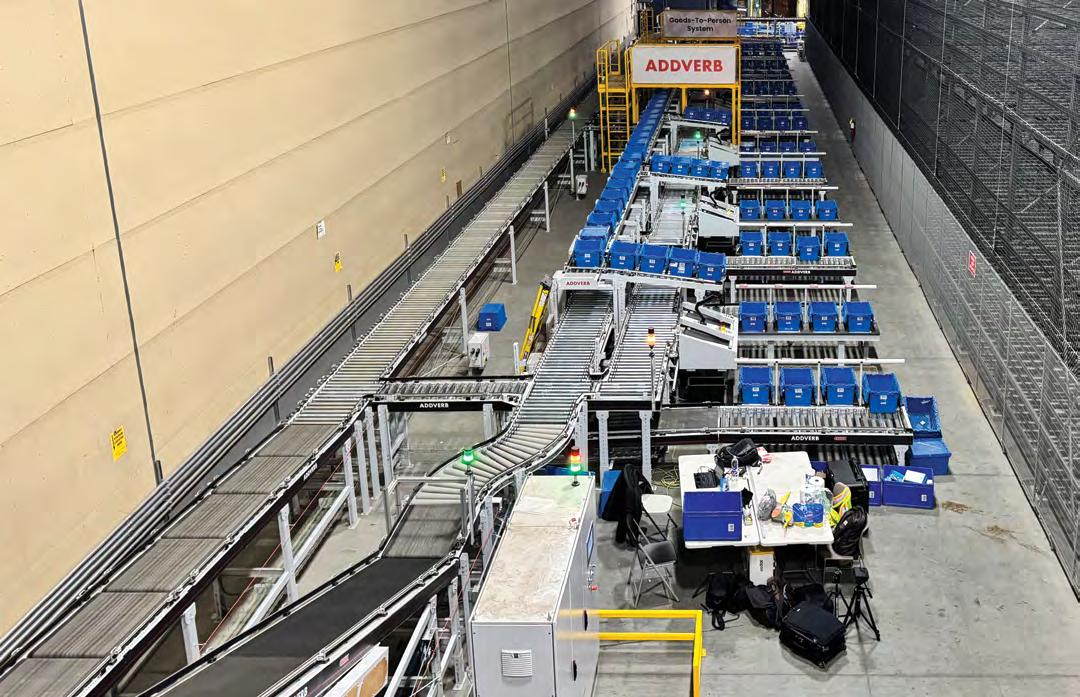
human-like dexterity and decision-making. From quality control to customer interactions in retail warehouses, their potential is vast. With emotional intelligence, they could also enhance workforce collaboration by bridging human teams and automation.
But the integration of humanoid robots also poses challenges. Ethical concerns, security of data, and the necessity for strong regulatory measures need to be met to enable responsible deployment. Industry players need to put priority on cooperation in order to have a balanced system where humanoids augment human potential and not supplant it.
The intersection of AI, robotics, and humanoid technologies foretells a future full of possibilities
for innovation and expansion. Addverb is always at the forefront of this revolution, continually challenging the boundaries of what can be achieved. By combining vision with a dedication to sustainability and customer focus, Addverb is not only shaping the future but inspiring the future of the logistics sector. Pieter continues: “As we innovate further, the future is paved with possibilities to develop smarter, safer, and more sustainable systems. Through collaboration and harnessing innovative technologies, we can create a future where human ingenuity and automation complement each other to deliver extraordinary results.”
Additionally, as a global pioneer in intralogistics automation solutions, Addverb is dedicated to empowering businesses with state-of-

the-art robotics and software solutions that enhance efficiency, reduce costs, and promote sustainability.
At the core of Addverb’s purpose is a diverse set of innovative products aimed at transforming supply chain processes. From autonomous mobile robots (AMRs) to sorting robots and picking solutions, every product is designed to streamline operational workflows and address the constantly evolving needs of today’s world.
Addverb’s intelligent software suite revolutionises warehouse and supply chain management through AI-driven orchestration. The company’s advanced warehouse execution systems seamlessly integrate with automation solutions, providing real-time visibility, adaptive decision-making, and flawless coordination of intricate logistics. By leveraging machine learning and predictive analytics, Addverb optimises workflows,
enhances accuracy, and scales operations effortlessly. With a software ecosystem, businesses achieve unmatched efficiency, precision, and agility in an ever-evolving supply chain landscape.
As the industry stands on the cusp of a new age, it is clear that AI and robotics will remain drivers of change. With humanoid robots entering the fray, the logistics scenario of 2025 will be smarter, and more human-oriented than ever.

Tariq Al Wahedi, General Manager of EMX, shares insights into the company’s latest sustainable initiatives, highlighting the role of electric vehicles in transforming the logistics landscape
Earlier last month, we introduced our first fleet of electric bikes, marking a key milestone in our commitment towards establishing a sustainable and efficient logistics ecosystem. This will soon be followed by the rollout of electrical minivans.
Equipped with best-inclass technology, the electric bikes will boost energy efficiency by 16%. They also feature advanced safety measures such as Combined Braking System (CBS) and hydraulic suspension to ensure driver safety even on challenging terrains. Additionally, battery charging infrastructure has already been installed at EMX hubs across the UAE.
The transition to electric
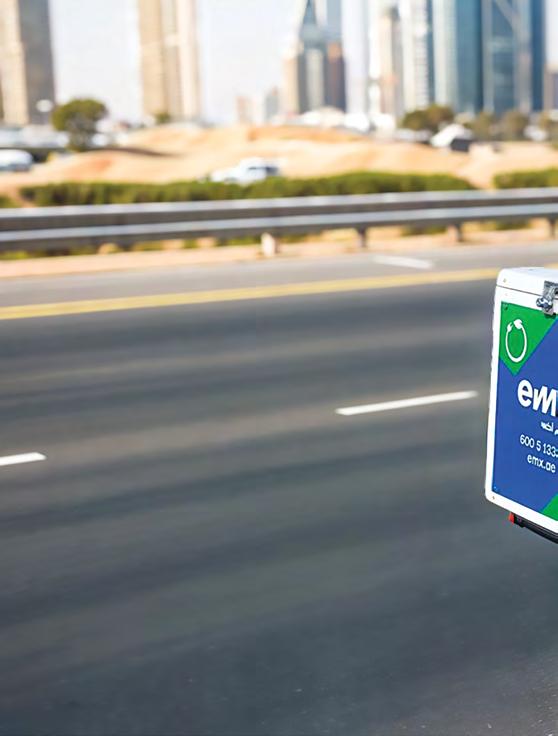


vehicles is a strategic step towards reducing our carbon footprint while enhancing operational efficiency. It supports the UAE’s broader vision of promoting green logistics and smart urban mobility. Furthermore, it aligns with our strategy to optimise last-mile delivery operations and embrace technological advancements that drive both environmental and operational benefits.
The introduction of electric vehicles has provided valuable insights, allowing us to evaluate the challenges and opportunities within the evolving mobility landscape. One of the primary challenges we encountered is the limited battery capacity of electric bikes, which
currently allows for a range of 65–75 kilometres per full charge. Since our couriers cover over 90 kilometres daily, they need to return to the office for a midday battery swap, which has had an impact on their overall efficiency.
To address this, we are constantly monitoring the electricity cost and consumption and improving our operational strategies to optimise the charging process. Our team remains proactive in mitigating these challenges, ensuring seamless integration into daily operations. As advancements in battery technology progress, we are confident that future enhancements will further support our efforts to overcome these hurdles, our sustainability efforts while maintaining operational excellence.
Balancing delivery expectations with sustainability objectives is an ongoing challenge in the logistics industry, particularly as customer demands for speed and efficiency continue to grow. While electric vehicles are a key part of our transition toward greener operations, sustainability in logistics extends beyond fleet choices, it requires a continuous re-evaluation of infrastructure, energy consumption, and operational efficiencies.
Tariq Al Wahedi, General Manager of EMX,

By leveraging data from our fleet, we are actively exploring solutions such as optimising charging infrastructure, refining battery swapping processes, and integrating smarter route planning. Our focus remains on driving sustainable innovation without compromising service quality, ensuring we meet both environmental and customer expectations.
Compared to the conventional delivery vehicles, electric bikes offer significant advantages in certain areas. For instance, they contribute to fuel savings, lower overall operational costs, and substantially reduce carbon emissions, making them a sustainable alternative for specific delivery needs. Similarly, their agility and flexibility can optimise delivery times and boost operational efficiency, particularly in urban environments. Electric bikes are a valuable addition to
our logistics operations, which underscores our commitment to attaining the country’s lowcarbon emission goals. As battery technology and infrastructure evolve, their role in supporting sustainable and efficient logistics is expected to grow further.
Electric bikes have great potential to become a dominant mode of delivery, particularly for e-commerce, and delivery of documents and small parcels. Their efficiency, costeffectiveness, and environmental benefits make them ideal for areas with high delivery density and shorter routes. However, for longer routes or deliveries with higher volumes, other electric vehicles, such as vans, may complement bikes to create a comprehensive fleet. While electric bikes play a significant role in the logistics industry, the future of sustainable delivery is expected to rely more on a mix of sustainable delivery modes to address diverse operational requirements.
As the adoption of electric bikes grows, technological advancements will further expand their role in e-commerce logistics. Improvements in battery technology, such as increased range and faster charging, will help address efficiency challenges. Similarly, mobile or decentralised charging solutions, including portable battery swapping stations, can provide greater
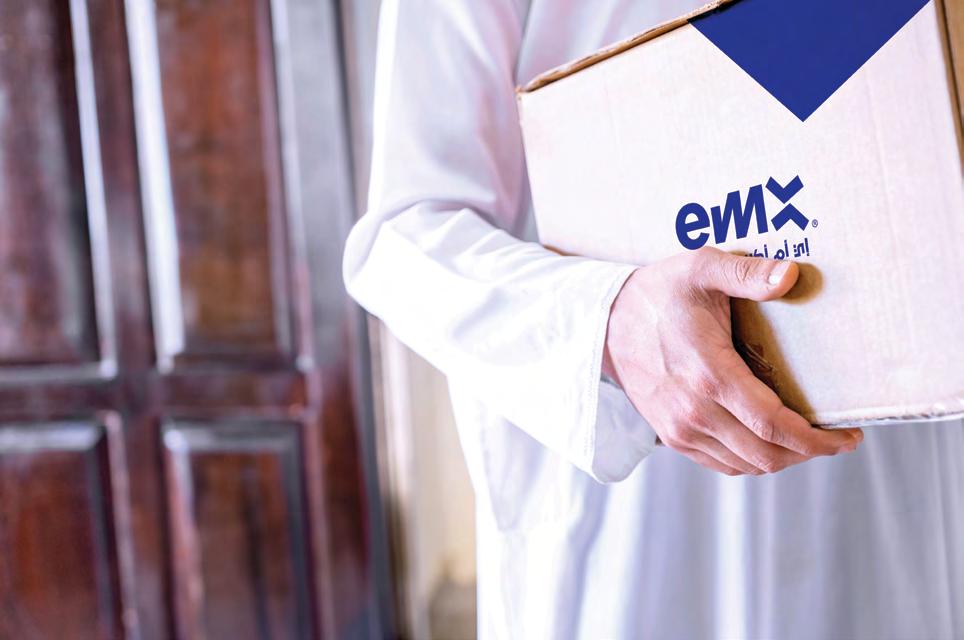
flexibility and reduce downtime. These innovations, coupled with ongoing improvements in safety features and vehicle design will enable electric bikes to play a more prominent role effectively and sustainably.
Building on the success of our initial electric fleet launch, we seek to expand our lineup by introducing more electric bikes and minivans into our operations. This will enable us to strengthen our sustainability commitment while optimising delivery performance across various logistics use cases. In addition, we aim to enhance our
battery charging infrastructure and leverage operational data to refine our operational processes. Our long-term goal is to increase the adoption of electric vehicles across our operations, supporting a more sustainable, efficient, and technology-driven logistics ecosystem.
The launch of our electric fleet represents a significant milestone in our journey toward sustainable logistics. While challenges exist, we are confident that the operational and environmental benefits will far outweigh them. We
remain committed to advancing sustainability in logistics and will continue to innovate and invest in technologies that improve efficiency, reduce our carbon footprint and address the evolving needs of the industry.
Furthermore, large multinational clients are increasingly integrating sustainable practices as key conditions in their tenders when selecting logistics partners. EMX has recognised this shift and positioned itself as a green-compliant partner, enabling businesses to meet their sustainability targets in carbon emissions reduction.
Saj Jabbar, GM, MAHY Khoory Automotive - sole distributor of Dongfeng UAE, talks about setting new standards in UAE automotive logistics
In the fast-paced world of automotive logistics, the efficiency of supply chains and the precision of transport solutions are crucial to maintaining a competitive edge. Dongfeng Motors, one of the world’s leading automotive manufacturers, has integrated state-of-the-art logistics management systems to optimise operations in the UAE market. With a focus on minimising lead times, ensuring consistent supply, and supporting sustainable practices, Dongfeng has transformed its logistics operations into a benchmark for the industry.
Dongfeng’s logistics operations are a testament to cuttingedge technology and strategic planning. Through an optimised supply chain, the company ensures seamless product flow from manufacturing facilities to dealerships across the UAE. The use of real-time tracking systems and advanced inventory management software enables

Dongfeng to minimise lead times and reduce the risk of stockouts, ensuring that the supply of vehicles to the UAE market remains consistent and responsive to demand fluctuations.
By leveraging data analytics, Dongfeng is able to forecast demand patterns more accurately,
allowing for agile adjustments to its supply chain processes. This foresight in inventory management and demand planning ensures that customers experience minimal wait times, an essential factor in today’s fast-moving automotive sector. Furthermore, the integration of cloud-based platforms allows Dongfeng to coordinate
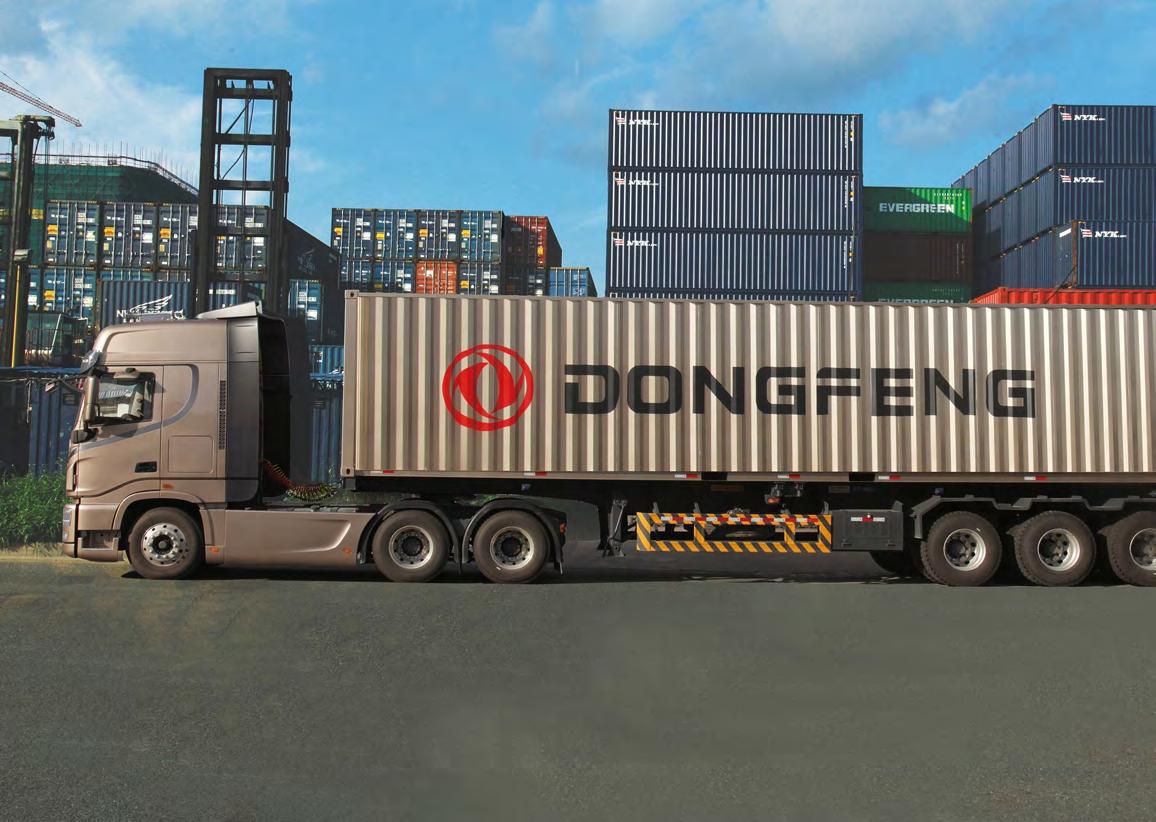
operations across multiple regions with exceptional speed and accuracy, ensuring that no vehicle is delayed in transit.
Transportation is one of the most challenging aspects of automotive logistics, especially when it comes to the safe and secure delivery of high-value goods like vehicles. Dongfeng’s logistics framework is tailored to address these unique challenges. The company has invested in specialised transport solutions designed to ensure the safe loading, unloading, and transit of vehicles to their final destinations in the UAE.
Dongfeng’s fleet of vehicles includes customised car carriers,
equipped with advanced securement systems to prevent damage during transit. These vehicles are designed to accommodate the specific needs of vehicle transportation, including variable load capacities and climate control features to safeguard vehicles from environmental conditions during long-haul deliveries.
The loading and unloading processes are carried out with precision, employing best-inclass equipment and trained personnel to ensure that vehicles are handled carefully and promptly. These specialised transport solutions not only enhance operational efficiency but also minimise the potential for damage, ensuring that customers receive their vehicles in pristine
condition, ready for sale or service.
A key element of Dongfeng’s success in the UAE market is its strategic partnerships with trusted local distributors, notably MAHY Khoory Automotive. This collaboration enhances the lastmile delivery process, ensuring that vehicles are delivered quickly and efficiently to dealerships and customers across the region.
MAHY Khoory’s extensive network of local distribution channels play a vital role in optimising the final stages of the delivery process. With an in-depth understanding of the local market and logistics infrastructure, the partnership
allows Dongfeng to navigate regional challenges effectively, delivering vehicles to the UAE’s rapidly expanding automotive market in a timely manner.
The partnership also ensures that Dongfeng’s vehicles are available across a wide range of locations, from urban centres to more remote areas, increasing accessibility for customers throughout the UAE. This strong local presence helps Dongfeng strengthen its foothold in the region, building brand trust and customer loyalty through reliable and efficient delivery.
In an era where environmental impact is a central concern for businesses and consumers alike, Dongfeng is committed to integrating sustainable practices into its logistics operations. The company’s green logistics initiatives focus on reducing carbon emissions, minimising waste, and promoting energy efficiency throughout the supply chain.
Dongfeng has made significant investments in eco-friendly technologies, such as electricpowered trucks and energyefficient warehouses, to minimise the environmental footprint of its operations. Additionally, the company prioritises the use of sustainable packaging materials and works closely with partners to reduce waste at every stage of the supply chain.
Furthermore, Dongfeng’s commitment to sustainability
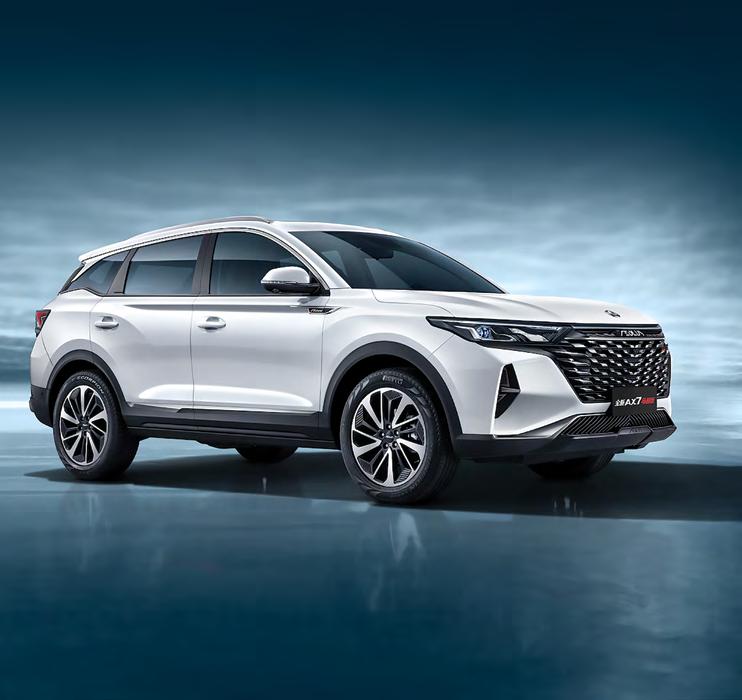
extends to its transportation solutions. The company employs fleet optimisation strategies that maximise fuel efficiency and reduce carbon emissions, all while maintaining the reliability and speed of its deliveries. This approach to green logistics not only helps Dongfeng align with global sustainability goals but also positions the company as a forward-thinking leader in the UAE’s automotive sector.
Dongfeng’s expertise in logistics management has had a profound impact on the UAE’s automotive landscape. Through its commitment to efficient, secure, and sustainable operations, Dongfeng has set a new standard for the industry, influencing the way vehicles are transported, distributed, and delivered across the region.
The integration of advanced
supply chain technologies, specialised transport solutions, strategic partnerships, and sustainable practices has positioned Dongfeng as a key player in the UAE market. As the automotive industry continues to evolve, Dongfeng’s logistics innovations will no doubt continue to shape the region’s mobility landscape, ensuring that the company remains at the forefront of the UAE’s dynamic automotive sector.
With logistics playing an everincreasing role in the success of the automotive industry, Dongfeng’s approach offers valuable insights for other manufacturers and distributors seeking to optimise their operations. Through its relentless focus on efficiency, security, and sustainability, Dongfeng is not only leading the way in logistics but also paving the path for a cleaner, more efficient future in automotive transport.

